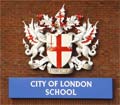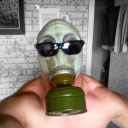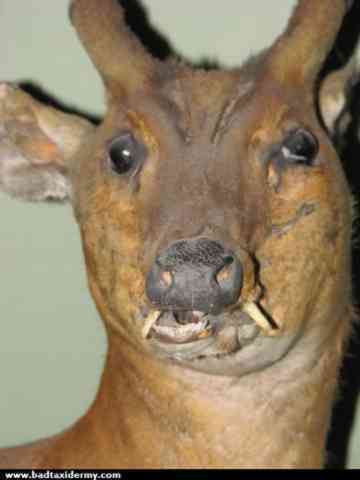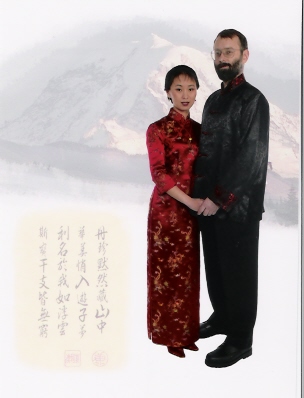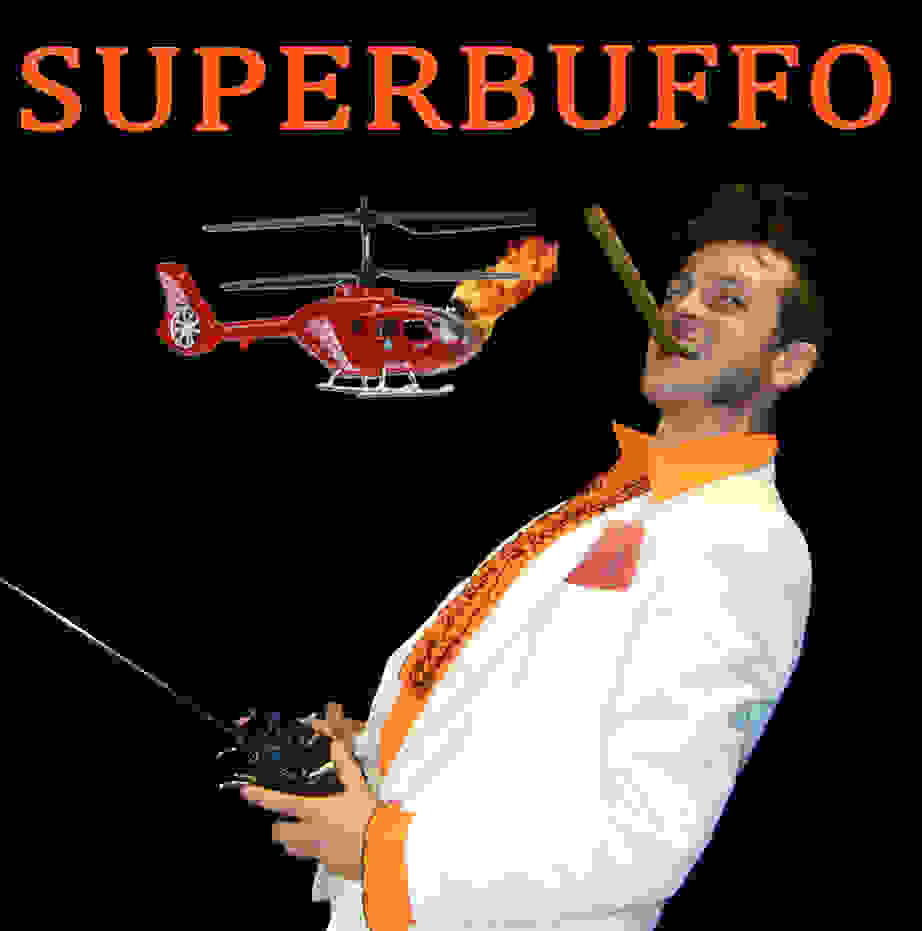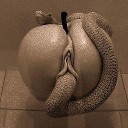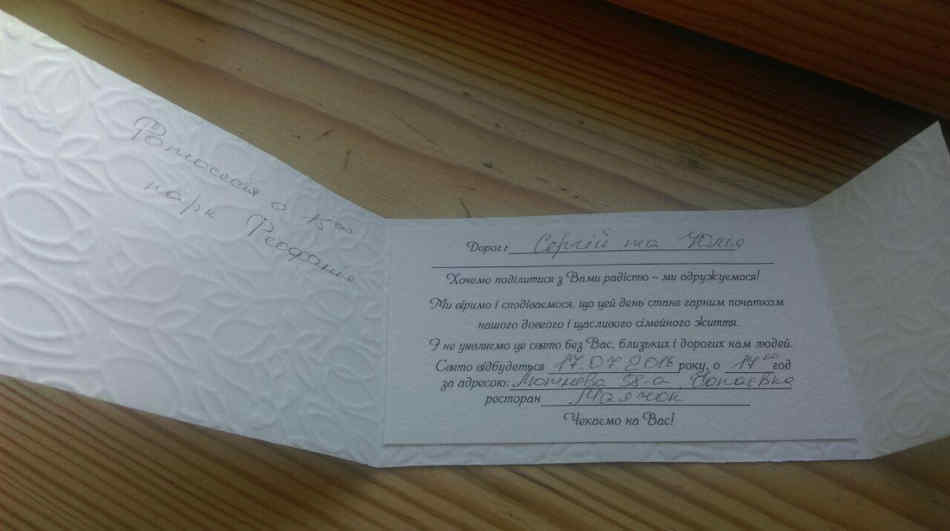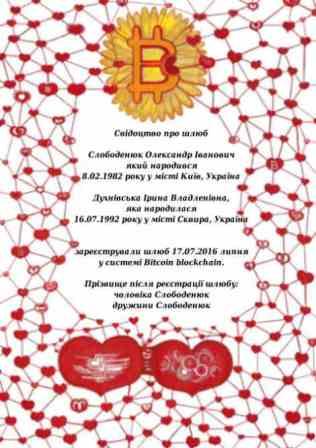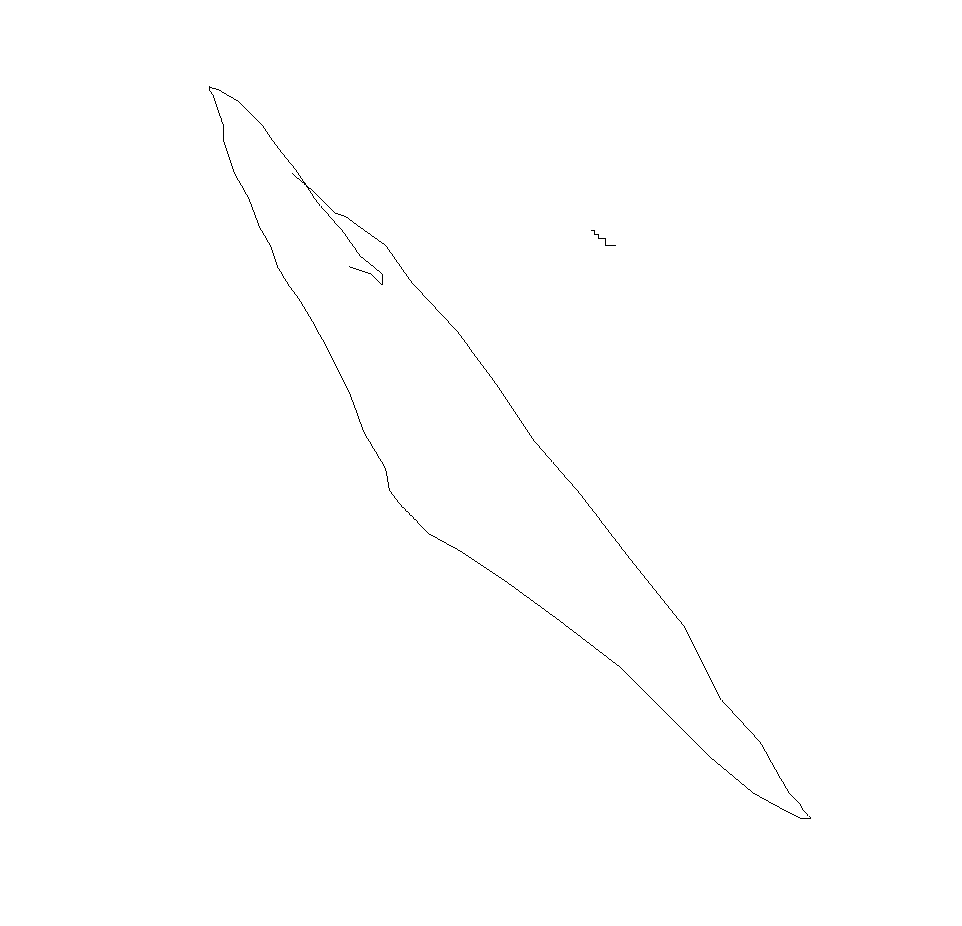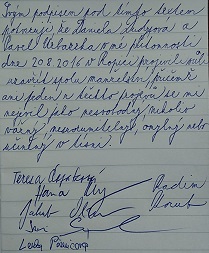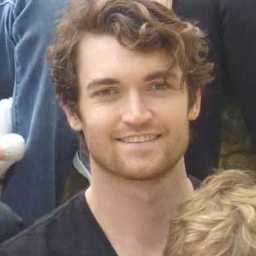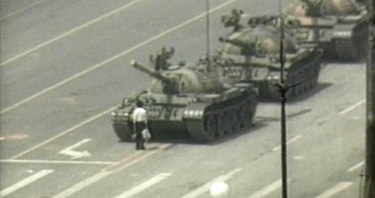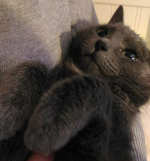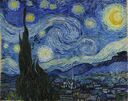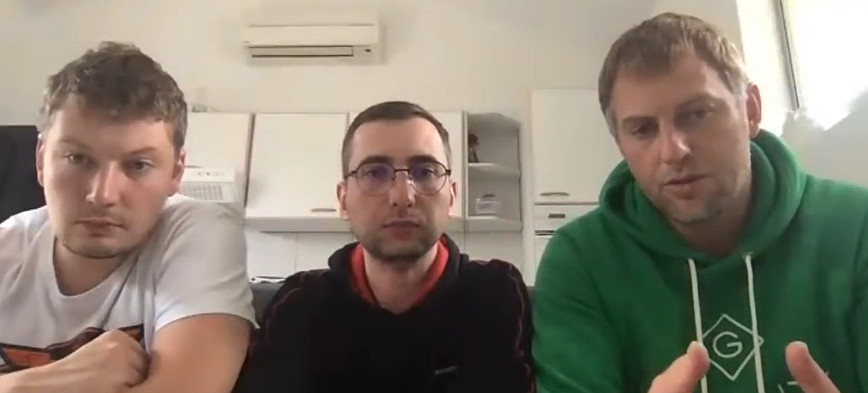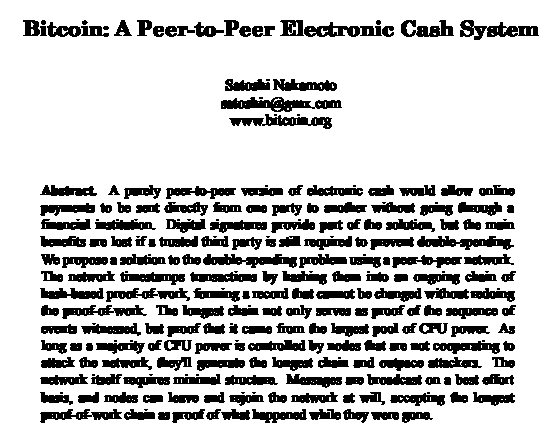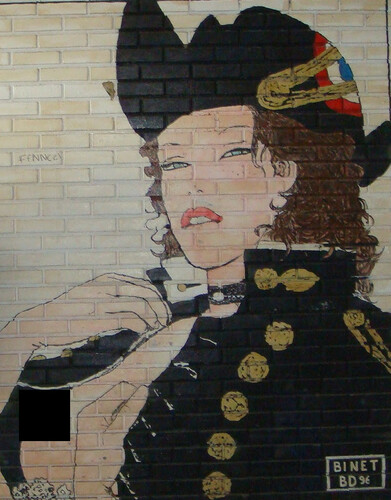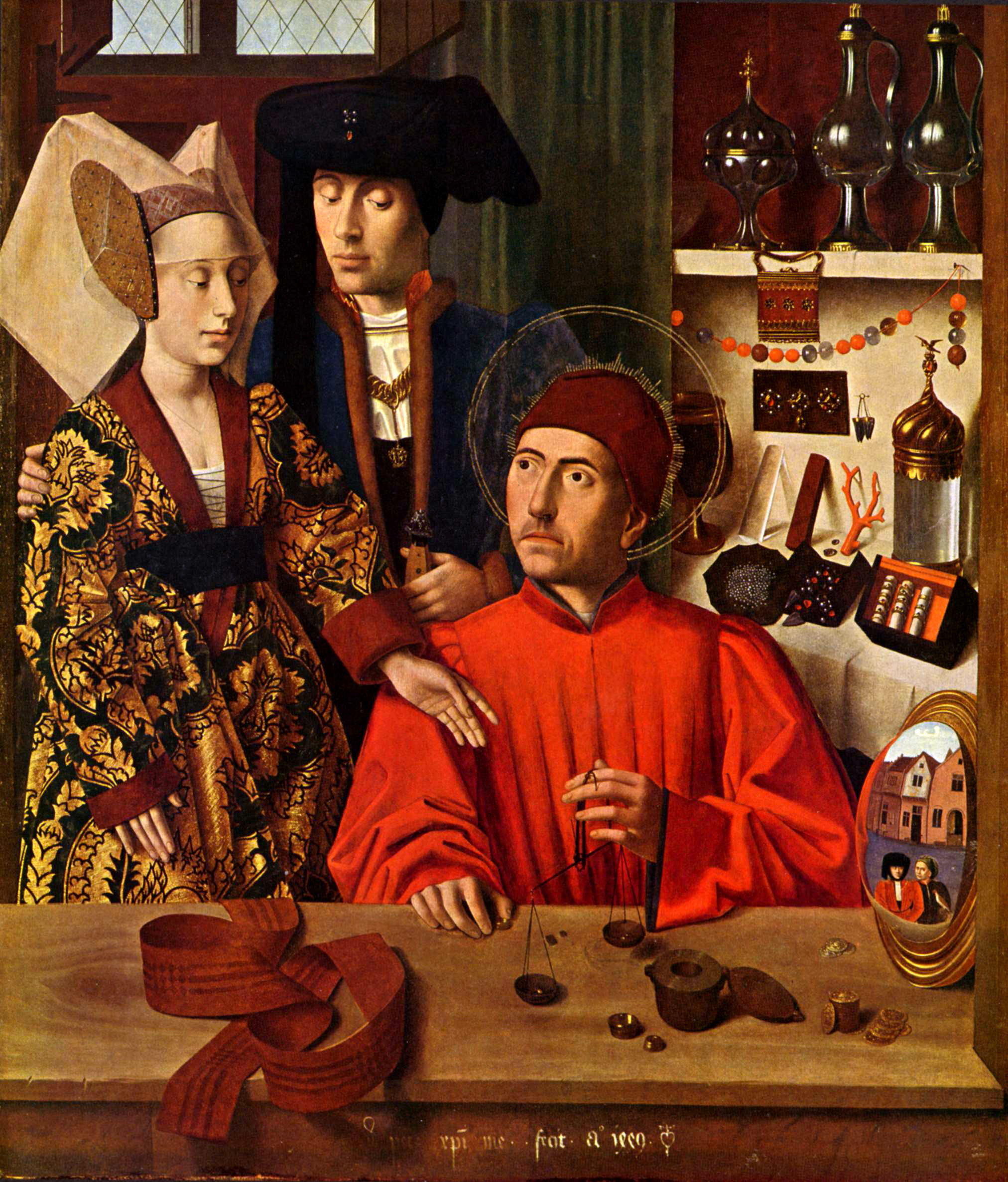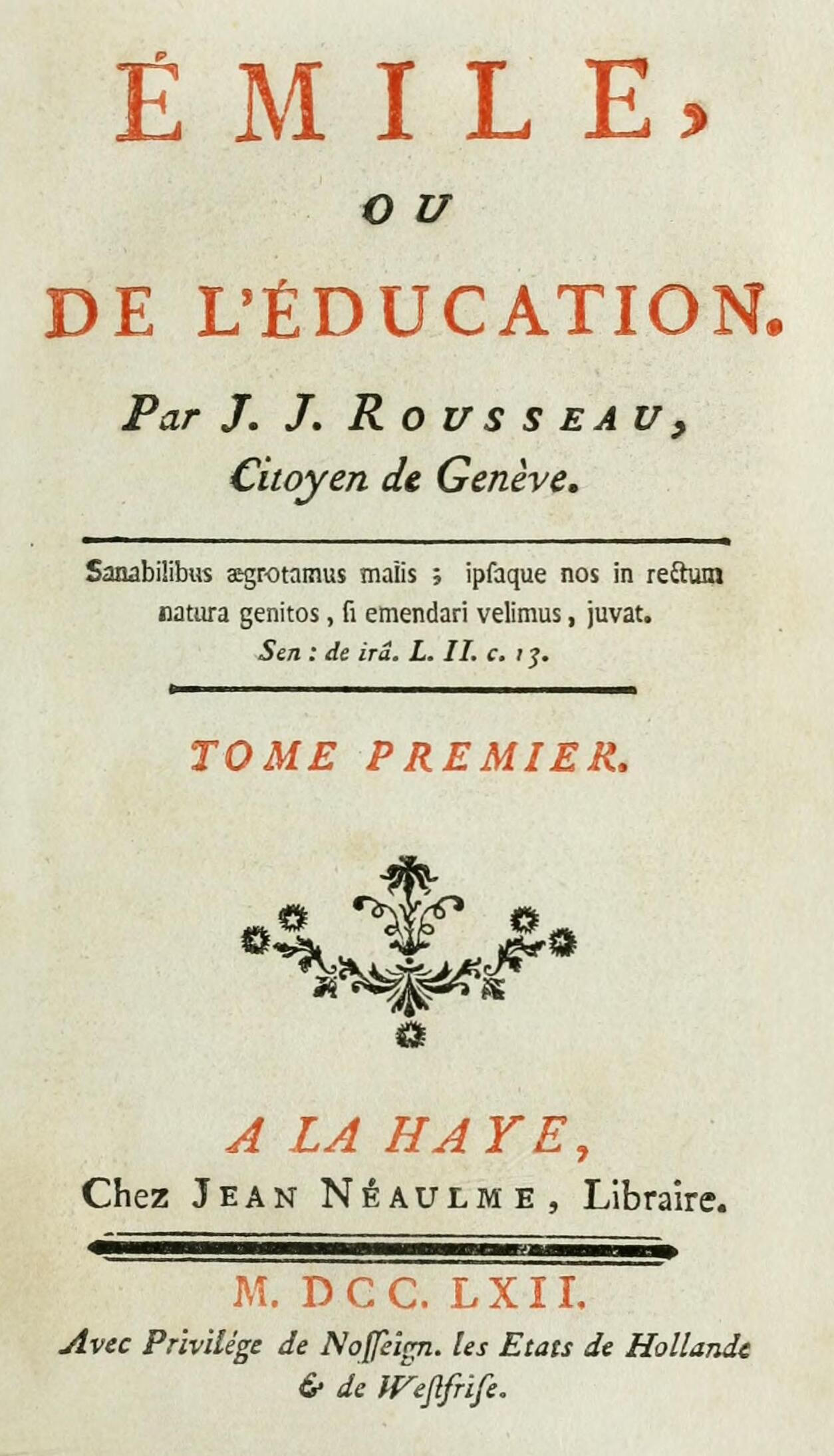CIA 2010 covert communication websites List of websites Updated 2025-11-30
This section contains a list of all the websites that we consider belong to the network beyond reasonable doubt.
The list is also available in JSON format at: github.com/cirosantilli/media/blob/master/cia-2010-covert-communication-websites/hits.json. When there are new additions we keep the JSON up to date with the help of the following OurBigBook Markup to JSON conversion helper ../cia-2010-covert-communication-websites/bigb-to-json:and new results that have been added to the list below can automatically be merged with ../cia-2010-covert-communication-websites/bigb-to-json-merge:We have also made a dump of the websites extracted from the Wayback Machine at: github.com/cirosantilli/cia-2010-websites-dump
cia-2010-covert-communication-websites/bigb-to-json cia-2010-covert-communication-websites.bigbcia-2010-covert-communication-websites/bigb-to-json-merge > tmp.json
mv tmp.json ../media/cia-2010-covert-communication-websites/hits.jsonThe main criteria to consider a website as a hit is for it to have a Wayback Machine archive with an archived communication mechanism. JS comms are always quickly visually inspected, other mechanisms we look only at filename patterns for now. We also consider as hits websites that don't have archived comms, often the case for CGI comms, but which have two ore more of the following supporting evidence:Commented edge cases that didn't make the cut can be found mostly under Section "IP range search" and Section "2013 DNS Census virtual host cleanup heuristic keyword searches".
- shares an IP range with other website
- a Wayback Machine archive or cqcounter screenshot strongly confirming visual style
- an archived broken link to the possible comms
| ip | domain | Wayback Machine | language | country mentions | comms | theme | notes |
|---|---|---|---|---|---|---|---|
| ? | 24hoursprimenews.com | 2009 | English | JAR | news | split images[ref][ref] | |
| ? | cyhiraeth-intlnews.com | 2011 | English | JAR | news | en.wikipedia.org/wiki/Cyhyraeth "The cyhyraeth is a ghostly spirit in Welsh mythology, a disembodied moaning voice that sounds before a person's death." WTF! So the serious looking black actress lady is meant to represent the voice of death?. Split images[ref][ref]. rss-items. Here she is on Getty Images: www.istockphoto.com/photo/natural-style-for-the-individual-gm171403107-26684547 by Urilux | |
| ? | dailynewsandsports.com | 2013 | English | JAR | sports | ||
| ? | differentviewtoday.com | 2011 | English | JAR | news | split images, JAR unarchived | |
| ? | euronewsonline.net | 2010 | English | JAR | news | a.newslink. The image of the woman reading newspapers reverse searches to www.istockphoto.com/photo/news-gm101581053-7410445, iStock from Getty images. Copyright 2007. | |
| ? | europeannewsflash.com | 2011 | English | JAR | news | Split images[ref][ref] | |
| ? | farsi-newsandweather.com | 2011 | Farsi | Iran | JAR | news | split images[ref][ref] |
| ? | financecentraltoday.com | 2011 | English | JAR | news, finance | unusual td > p > strong article list. Copyright 2008. | |
| ? | firstnewssource.com | 2011 | Farsi | Iran | JAR | news | Copyright 2009. Split images. rss-items. |
| ? | global-view-news.com | 2011 | English | JAR | news | split images[ref][ref] | |
| ? | globaltourist.net | 2010 | English | JAR | travel | split images[ref][ref], rss-items. speed.jar "speed test" JAR pattern. The split headers have a weird style however <li><a id="banner1"> </a></li> and then filled with a CSS background image. This is a weird one, there is some chance that it is a legit website in the CIA style. Notably, at least as of August 2012 it had become a wordpress site marked "Just another Media Network Online Sites site", which is a bit early. Likely they just watch for good domain drops and take over quickly. The last in-style archive is from March 2012, which is first followed by a Godaddy parked domain on April 2012. This domain also has a 2003 archive which is almost certainly from the same authors as it also has a link to globaltourist.net/speed.jar and the upper left image is the same. Its history does however remember us of alljohnny.com, which had its 2004 version and then a 2010 rehash. Both of these versions contain ImageReady Slices mentions in them, characteristic of the split header images fingerprint. | |
| ? | hassannews.net | 2010 | Arabic | SWF | news | CSS or archive quite broken. Split images[ref][ref]. rss-items. cqcounter.com/whois/www/hassannews.net.html not found. The arabic title is "حسن الأخبار" (good news) and the domain seems to be a transliteration of it. | |
| ? | health-men-today.com | 2011 | Arabic | JAR | news | rss-items. Encoding broken. cqcounter.com/whois/www/health-men-today.com.html also broken. Same registrar as medicatechinfo.com: Jason Noll IP and DNS metadata. Closely related stock model image comically used as the image of the Gay Arab Central community on the. Copyright 2008. | |
| ? | inkfreenews.com | 2011 | English | JAR | news | split images, JAR unarchived | |
| ? | internationalnewsworthiness.com | 2011 | English | JAR | news | RSS, split images, JAR unarchived | |
| ? | intlnewsdaily.com | 2011 | English | JAR | news | rss-items | |
| ? | intoworldnews.com | 2011 | English | JAR | news | split images. Links to news websites from frontpage, not news themselves. | |
| ? | iranfootballsource.com | 2011 | Farsi | JS | sports, football | ||
| ? | iraniangoalkicks.com | 2008 | Farsi | Iran | JAR | sports, football | |
| ? | iraniangoals.com | 2009 | Farsi | Iran | JS | sports, football | |
| ? | latinamericanewsbeat.com | 2010 | English | JAR | news | split images. Also has an archived "register" link at the bottom: web.archive.org/web/20101114045007/http://latinamericanewsbeat.com/register.html but it reads "We are currently unable to register new members while we upgrade our site. Please check back soon." | |
| ? | magneticfieldnews.com | 2010 | English | JAR | news | rss, split images | |
| ? | middle-east-newstoday.com | 2010 | Farsi | JS | news | rss, split images | |
| ? | mideasttoday.net | 2010 | Farsi | JAR | news | a.rss-item, split images, copyright 2008 | |
| ? | mydailynewsreport.com | 2011 | Pashto | Afghanistan | JAR | news | rss, split images |
| ? | mynepalnews.com | 2011 | English | JAR | news | Split images with <li><a id="banner1"> </a></li> style. Nice swimsuit ad. The bottom bar "Copyright © 2008 My Nepal News, LLC. All Rights Reserved." is also kind of typical, see e.g. web.archive.org/web/20110208042144/http://helpinghandssite.com/, both have <!-- begin #footer --> and <div id="footer">. ingenuitytrendz.com is another closely related template. One ridiculously mind blowing thing about this website is the presence of Webalizer reports under /stats e.g.: /stats. This fact is so mind blowing that it makes us question if this an actual hit or just style coincidence. Particularly ridiculous is the presence of inurl:cgi server_software at web.archive.org/web/20110204095809/http://mynepalnews.com:80/stats/usage_200805.html which is almost certainly a Google dork search, which we know is something that the Iranians used to find the websites. Also of interest are link backs from at web.archive.org/web/20110204095815/http://mynepalnews.com:80/stats/usage_200806.html from whois.domaintools.com/mynepalnews.com and www.whois.sc/mynepalnews.com That search hits under /cgi-bin/check.cgi. That page is itself os some interest containing SERVER_ADMIN = mmadev@mmadev.com. web.archive.org/web/20110204095815/http://mynepalnews.com:80/stats/usage_200806.html also reveals several request IPs. Even if this is not a CIA website, there's a chance we could find the IP of the Iranian counter-intelligence in these IP list, it's mind blowing. And if a hit, we could also find IPs used by CIA handlers to see if the website is working. Lot's of referrer spam too as well. | |
| ? | newdaynewsonline.com | 2011 | English | JAR | news | ||
| ? | networkconnectionsite.com | 2011 | English | JS | news | rss, split images | |
| ? | news-latina.com | 2011 | English | JAR | news | copyright 2007 | |
| ? | newsdelivered.net | 2010 | English | JAR | news | rss, split images, JAR unarchived | |
| ? | newsincirculation.com | 2011 | Arabic | JAR | news | ||
| ? | newsworldsite.com | 2011 | Pashto | Afghanistan | JAR | news | |
| ? | opensourcenewstoday.com | 2010 | Arabic | JAR | news | copyright 2010 | |
| ? | outlooknewscast.com | 2011 | Farsi | Iran | JAR | news | |
| ? | pars-technews.com | 2011 | Farsi | Iran | JAR | news | "pars" presumably means "Parsi" or something of the same root |
| ? | pondernews.net | 2011 | Arabic | JAR | news | rss. Some archived pages use unusual paths such as /lldwg/qlaqft.php?fc=282910. | |
| ? | profile-news.com | 2011 | English | JAR | news | a.newslink | |
| ? | purlicue-news.com | 2011 | English | JAR | news | split images, rss | |
| ? | segomonews.com | 2011 | English | JAR | news | rss, split images. TODO meaning of "segomo"? The main Wikipedia hit is a Gallo-Roman God, but the website is focused on Asia? | |
| ? | shadesofnews.com | 2011 | Arabic | JAR | news | a.rss-item, split images. Also has a second from 2013 JAR at: web.archive.org/web/20131229092754/http://shadesofnews.com/sptgms213.jar and a raw .class crime.Business.class which replies with "The requested document was not found on this server". Copyright 2009. | |
| ? | sportsnewsfinder.com | 2011 | Chinese | China | JAR | news | 体育新闻发现者 (sports news finder) |
| ? | techwatchtoday.com | 2011 | English | JAR | tech, news | Marked copyright 2008. Split images[ref][ref]. Later legit. | |
| ? | terrain-news.com | 2011 | Pashto | Afghanistan | JAR | news | |
| ? | todayoutdoors.com | 2011 | English | JAR | sports, travel | split images[ref][ref] | |
| ? | todaysnewsreports.net | 2010 | Arabic | JAR | news | ||
| ? | weblognewsinfo.com | 2011 | English | JAR | news | Split images, rss-items. | |
| ? | wiredworldnews.com | 2011 | English | JAR | tech | split images, copyright 2008 | |
| 62.22.60.40 | travel-passage.com | 2011 | English, Chinese | travel | No Wayback Machine archives of toplevel, only of the 航空 Flight Reservations subpage: web.archive.org/web/20091118013330/http://travel-passage.com:80/service-flights.htm. The link to it can be seen from the cqcounter screenshot. The page contain an unusual mixture of Chinese and English. The Chinese title is 游行连接 (lit. travel connection) | ||
| 62.22.60.42 | newsupdatesite.com | 2011 | English | JAR | news | split images, rss-item. JAR unarchived. | |
| 62.22.60.46 | flyingtimeline.com | 2011 | English | JAR | airplanes | ||
| 62.22.60.48 | currentcommunique.com | 2011 | English | Egypt | SWF | news | |
| 62.22.60.49 | telecom-headlines.com | 2011 | English | JS | tech | ||
| 62.22.60.52 | collectedmedias.com | 2011 | French | JS | news | Marked copyright 2008 | |
| 62.22.60.54 | romulusactualites.com | 2011 | French | France | news | ||
| 62.22.60.55 | thefilmcentre.com | 2011 | English | JS | films | ||
| 62.22.60.56 | traveltimenews.com | 2011 | English | JS | news | ||
| 62.22.61.193 | awfaoi.org | 2010 | Arabic | Iraq | JAR | not-for-profit | This was the first clear .org hit with comms we've been able to find. Title translation: "Arab women to help Iraq", so perhaps "awfaoi" stands for "Arab Women For A O? Iraq". This fits well into the .org theme. Marked copyright 2008. |
| 62.22.61.197 | rc5sports.com | 2011 | English | JAR | sports | ||
| 62.22.61.198 | inside-vc.com | 2011 | English | CGI | finance | "vc" is a standard abbreviation for venture capital. Previously legit circa 2004: web.archive.org/web/20030306171752/http://www.inside-vc.com/ | |
| 62.22.61.200 | zerosandonesnews.com | 2011 | English | SWF | news | rss, split images | |
| 62.22.61.202 | bailsnboots.com | 2011 | English | SWF | sports, cricket | "Bail" is one part of the thing your're supposed to hit with th eball in cricket.[ref] | |
| 62.22.61.203 | the-cricketer-online.com | 2011 | English | JAR | sports, cricket | marked copyright 2009. | |
| 62.22.61.204 | hollywoodscreen.net | 2011 | English | JS | films | ||
| 62.22.61.206 | worldnewsnetworking.com | 2011 | Arabic | JAR | news | ||
| 62.22.61.212 | nuestrasfinanzas.com | 2011 | Spanish | JAR | finance | ||
| 62.22.61.213 | sandstormnews.com | 2011 | Arabic | SWF | news | rss, split images | |
| 62.22.61.215 | the-tech-mind.com | 2011 | English | technology, news | Welcome to the US Petabox on Wayback Machine. | ||
| 62.22.61.217 | court-masters.com | 2011 | English | JAR | sports, tennis | ||
| 62.22.61.219 | allworldstatistics.com | 2011 | English | JS | statistics | ||
| 62.22.61.220 | newsjaka.com | 2011 | English | Indonesia | JS | news | "jaka" presumably means Jakarta, the capital of Indonesia. There is a Indonesia section on the left sidebar. But the news are quite global however. Photo source: www.shutterstock.com/image-photo/little-boat-on-bratan-lake-front-5860873 depicts "Bratan lake in front of the Pura Ulu Danau temple" by Ine Beerten. Pinged her at: portfolio.inebeerten.be/#Contact |
| 63.131.229.2 | fightskillsresource.com | 2011 | English | JS | sports, martial arts | Getty Images for the karate dude: www.istockphoto.com/photo/take-off-gm98702037-1196239 | |
| 63.131.229.4 | unitedterritorynews.com | 2011 | English | JS | news | ||
| 63.131.229.9 | show-dustry.com | 2011 | English | CGI | entertainment | The website name is a neologism with "show" and "industry". | |
| 63.131.229.11 | mythriftytrip.com | 2010 | English | CGI | travel | thrifty means: "using money and other resources carefully and not wastefully" | |
| 63.131.229.12 | cyberreportagenews.com | 2011 | English | JAR | news | rdns source | |
| 63.131.229.13 | sunrise-news.com | 2011 | English | JAR | news | rdns source | |
| 63.131.229.15 | cricketnewsforindia.com | 2013 | English | India | JS | sports, cricket | archive quite broken, lots of missing files, including the JS. cqcounter.com/whois/www/cricketnewsforindia.com.html in style. |
| 63.131.229.16 | nutricion-saludable.net | 2010 | Spanish | CGI | health | Also under nutricion-saludable.info. There is weirdly a single page archived from 2008: epages/nutricion-saludable_net.sf with this weird .sf extension. It is HTML however. It says: "Lo sentimos, la tienda está actualmente cerrada por razones técnicas. Pronto estaremos a tu disposición. Si lo deseas puedes ponerte en contacto con nosotros en el tel: 651 80 76 19". This appears to be a spanish phone number: without country code, which would be +34[ref]. | |
| 63.131.229.20 | fixashion.net | 2011 | English | JS | fashion | ||
| 63.130.160.50 | theglobalheadlines.com | 2010 | English | JAR | news | this has several archives from 2013, marked as Live Web Proxy Crawls and explained "mostly by the Save Page Now", so presumably by counter intelligence or amateurs | |
| 63.130.160.51 | hai-pow.com | 2011 | English | JAR | sports, martial arts | ||
| 63.130.160.53 | echessnews.com | 2011 | Chinese | China | JAR | sports, boxing | Chinese title: 我的象棋世界 (My Chinese Chess world). rdns source. Split images[ref][ref] |
| 63.130.160.60 | boxingstop.net | 2010 | Polish | Poland | JAR | sports, boxing | |
| 63.130.160.61 | bookmarksthis.com | 2010 | English | JAR | books | A book review website. Shows a stock model reading a book and their signature black print over decorations on top | |
| 63.130.160.62 | azerinews.org | 2009 | Azerbaijani | Azerbaijan | JAR | news | rdns source. Split images, rss-items. "Azeri" is a word that denotes the people from the region of Azerbaijan. |
| 64.16.204.53 | bosniakbusinessnews.com | 2011 | English | Bosnia | business | A Bosniak is someone from an ethnicity from Bosnia | |
| 64.16.204.54 | affairesdumonde.com | 2011 | French | news | |||
| 64.16.204.55 | holein1news.com | 2010 | English | JAR | sports, golf | ||
| 64.16.204.58 | tech-topix.com | 2013 | English | CGI | tech | Archive quite broken, but link to CGI comms. Copyright 2010. cqcounter.com/whois/www/tech-topix.com.html not found. | |
| 65.61.127.161 | european-footballer.com | 2011 | Croatian | Sports, football | Broken Wayback Machine archive: web.archive.org/web/20110319111233/http://european-footballer.com/. The title was "Europski Nogometaš" (European football player). The CQ Counter screenshot clarifies that the surviving Wayback Machine archive contains only a sidebar. It is unlikely to contain comms therefore. | ||
| 65.61.127.163 | capture-nature.com | 2011 | English | JAR | photography | Reuters example. Since became legitimate, Ciro contacted the owner, and he was unaware of the domain's history. | |
| 65.61.127.166 | globalnewsbulletin.com | 2013 | English | Tunisia, Afghanistan, Iran, Egypt | CGI | news | PHP pages, images /images/index_01.jpg |
| 65.61.127.167 | internationalwhiskylounge.com | 2011 | English | CGI | news | No Wayback Machine archives. There's a "Log-in" tab so CGI comms likely. Stock image used of young woman with a glass of Whisky: www.istockphoto.com/photo/the-girl-with-glass-of-whisky-gm94997193-11328059 by alarich | |
| 65.61.127.168 | the-golden-rule.info | 2011 | English | finance, news | Website error archived at: web.archive.org/web/20131011012026/http://the-golden-rule.info/ | ||
| 65.61.127.169 | crossovernews.net | 2011 | English | JAR | sports, basketball | ||
| 65.61.127.170 | newsidori.com | 2011 | English | news | Very broken 2013 archive: web.archive.org/web/20130714134510/http://www.newsidori.com/. "Idori" sounds Japanese, but the meaning is unclear even after the cqcounter screenshot! It's just random US news, nothing to do with Japan. | ||
| 65.61.127.171 | nrgconsultingandnews.com | 2011 | English | news | It is in English but contains several mentions of Brazil. Entitled: "Energy Consulting News Forum" | ||
| 65.61.127.171 | premierstriker.com | 2011 | English | sports, football | No Wayback Machine archives from the time, and has been since parked by something apparently as of 2022 onwards. Entiled "Premier striker" | ||
| 65.61.127.174 | dedrickonline.com | 2010 | German | JS | sports | ||
| 65.61.127.175 | altworldnews.com | 2013 | English | CGI | news | Epoch times link, PHP pages | |
| 65.61.127.176 | american-historyonline.com | 2011 | English | history | No Wayback Machine archives | ||
| 65.61.127.177 | material-science.org | 2009 | English | science, material science | No comms found, and slightly innovative design. Comms could be CGI under web.archive.org/web/20091213032538/http://material-science.org/services.htm or web.archive.org/web/20091213032538/http://material-science.org/equipment.htm. But marking it as hit because .rss-item + IP range. | ||
| 65.61.127.178 | tee-shot.net | 2011 | English | SWF | sports, golf | nice domain name | |
| 65.61.127.180 | screencentral.inf | 2011 | English | Afghanistan | cinema | Rather innovative design, but hit likely. Welcome to US Petabox: web.archive.org/web/20130713224951/http://screencentral.info/. | |
| 65.61.127.181 | worldnewsandtravel.com | 2011 | English | news | No Wayback Machine archives | ||
| 65.61.127.182 | pangawana.com | 2011 | Arabic | Afghanistan | JS | news | |
| 65.61.127.183 | cutabovenews.com | 2011 | English | Algeria, various others | JS | sports, basketball | The globe on Shutterstock: www.shutterstock.com/image-illustration/creative-drawing-charts-graphs-business-success-211092952 by rzoze19. Pinged him at: x.com/cirosantilli/status/1899748328549609700 |
| 65.61.127.184 | worldwildlifeadventure.com | 2011 | English | JAR | travel | ||
| 65.61.127.186 | explorealtmeds.com | 2013 | English | JAR | health | the JAR was not archived, but there's a link to it | |
| 65.218.91.9 | rolling-in-rapids.com | 2010 | English | sports, kayak | Found by searching for "Glaze, L.", registrar of alljohnny.com, on tools.whoisxmlapi.com/reverse-whois-search | ||
| 65.218.91.9 | welcometonyc.net | 2010 | English | CGI | travel | ||
| 65.218.91.17 | alljohnny.com | 2004 | English | CGI | fansite | mega early hit from 2004 to 2005. Then a gap, then they redid the domain: 2011. Same authors given content similarities e.g. "Submit Your Favorite Carson Moment". Reusing the domain after all these years, the lack of OPSEC is just mind blowing! New website marked Copyright 2003. Part of Oleg Shakirov's findings. One of the Reuters websites. Search documented at: Searching for Carson. Carson is also featured, although less proeminently, at webofcheer.com. There must have been some massive Johnny Carson fan among the contractors a that time! | |
| 66.45.179.192 | thegraceofislam.com | 2011 | English | CGI | religion, Islam | ||
| 66.45.179.193 | arabicnewsunfiltered.com | 2011 | Arabic | JAR | news | rdns source | |
| 66.45.179.194 | raulsonsglobalnews.com | 2011 | English | JAR | news | ||
| 66.45.179.195 | aryannews.net | 2010 | Pashto | Afghanistan | JAR | news | rdns source. Heil. |
| 66.45.179.199 | attivitaestremi.com | 2011 | Italian | CGI | sports | ||
| 66.45.179.200 | foodwineandsuch.com | 2011 | English | food | No Wayback Machine archives. Entitled "Food, wine & such". | ||
| 66.45.179.201 | hitthepavementnow.com | 2011 | English | CGI | sports, running | ||
| 66.45.179.202 | newimages.org | 2011 | Turkish | Turkey | JAR | photography | JAR unarchived |
| 66.45.179.203 | noticiascontinental.com | 2011 | Spanish | South America | CGI | news | |
| 66.45.179.205 | noticiasporjanua.com | 2011 | Spanish | JAR | news | ||
| 66.45.179.206 | podisticamondiale.com | 2010 | Italian | Italy | JAR | sports, running | marked copyright 2010 |
| 66.45.179.207 | reflectordenoticias.com | 2011 | Spanish | JAR | news | ||
| 66.45.179.208 | havenofgamerz.com | 2011 | English | CGI | gaming | marked copyright 2009 | |
| 66.45.179.209 | vejaaeuropa.com | 2011 | Brazilian Portuguese | Brazil | travel | web.archive.org/web/20130810131440/http://www.vejaaeuropa.com/: Welcome to the US Petabox. cqcounter.com/whois/www/vejaaeuropa.com.html confirms Brazilian Portuguese. Entitled "Veja a Europa" (Visit Europe, lit. See Europe) | |
| 66.45.179.210 | sa-michigan.com | 2011 | English | JAR | sports | "sa" is an abbreviation for the site title "Sports Alive" | |
| 66.45.179.211 | absolutebearing.net | 2010 | English | CGI | travel, sports, boats | ||
| 66.45.179.213 | myportaltonews.com | 2011 | English | JS | news | ||
| 66.45.179.214 | investmentintellect.com | 2011 | English | JAR | finance | ||
| 66.45.179.215 | nigeriastar.net | 2011 | English | Nigeria | JAR | news | Contains link to unarchived JAR |
| 66.104.169.163 | doctorsoncallsite.com | 2011 | English | JAR | health | ||
| 66.104.169.164 | lightandshadowonline.com | 2010 | English | JAR | photography | ||
| 66.104.169.168 | plugged-into-news.net | 2010 | English | JAR | news | JAR uses .zip extension! First instance, wow | |
| 66.104.169.169 | worldsportsite.com | 2011 | Arabic | sports | Comms not found. rss-items, split images. Has some apparently unrelated archives from 2008: web.archive.org/web/20080617213238/http://www.worldsportsite.com:80/ | ||
| 66.104.169.171 | golf-on-holiday.com | 2011 | English | JAR | sports, golf | ||
| 66.104.169.172 | perspectiva-noticias.com | 2011 | Spanish | JS | news | ||
| 66.104.169.175 | aquaswimming.com | 2009 | English | JAR | sports, swimming | ||
| 66.104.169.177 | dojo-temple.com | 2011 | English | CGI | sports, martial arts | TODO meaning of "kama"? Kama lol? | |
| 66.104.169.179 | neighbour-news.com | 2010 | English | Germany | JAR | news | Mentions of Goethe-Institut and Germany all over. JAR unarchived |
| 66.104.169.180 | medicatechinfo.com | 2010 | English | JS | health | ||
| 66.104.169.181 | brickmanfinancialnews.com | 2011 | English | JS | finance | ||
| 66.104.169.182 | casanewsnow.com | 2011 | English | JAR | JAR unarchived. TODO why "casa"? Doesn't seem to have any link to Spanish or Portuguese. | ||
| 66.104.169.184 | bcenews.com | 2011 | Albanian | Albania | JAR | news | Used to be a legit Korean website circa 2004: web.archive.org/web/20030401214602/http://www.bcenews.com/ |
| 66.104.173.163 | runakonews.com | 2011 | English | Africa | CGI | news | "Runako" is an African given name. |
| 66.104.173.164 | shoppingadventure.net | 2010 | English | JAR | travel, shopping | JAR unarchived | |
| 66.104.173.165 | entertaining-ly.com | 2011 | English | JAR | entertainment | ||
| 66.104.173.166 | zubeenews.com | 2011 | English | JS | news | "Zubee" is a Muslim name: muslimnames.com/zubee. | |
| 66.104.173.169 | smart-financeology.com | 2011 | English | JAR | finance | ||
| 66.104.173.173 | worldfeedstoday.com | 2011 | English | news | No main page Wayback Machine archives. Subpage archive: 2011 has a.newslink. Slightly innovative style with multi-language tabs. There is some potential for error, but let's consider it. world-newsfeeds.com also known on same IP but with no known archives. | ||
| 66.104.173.175 | media-coverage-now.com | 2010 | English | SWF | news | ||
| 66.104.173.176 | jbc-online-news.com | 2011 | English | JS | news | TODO meaning of "JCB". JS unarchived. | |
| 66.104.173.177 | webscooper.com | 2011 | English | JAR | news | ||
| 66.104.173.178 | dk-dcinvestment.com | 2010 | English | JAR | finance | TODO meaning of "dk;dc". | |
| 66.104.173.179 | newsforthetech.com | 2011 | English | news, tech | Welcome to the US Petabox. | ||
| 66.104.173.180 | stara-turistick.com | 2011 | Croatian | JAR | tourism | ||
| 66.104.173.181 | playbackpolitics.com | 2011 | English | JS | news | ||
| 66.104.173.182 | snapnewsfront.net | 2011 | English | Japan | JS | news | |
| 66.104.173.183 | ingenuitytrendz.com | 2011 | English | JAR | tech | ||
| 66.104.173.184 | armashoy.com | 2011 | Spanish | Spain | SWF | guns | meaning: "Weapons Today". In First World countries the CIA felt it would be safe to touch edgier subjects like guns |
| 66.104.173.185 | baocontact.com | English | JAR | HTML archive almost empty, but JAR was archived. One wonders what "bao" refers to, could be Chinese, but the small snippet of visible website is in English. | |||
| 66.104.173.186 | myworldlymusic.com | 2011 | English | Pakistan | JAR | music | JAR unarchived |
| 66.104.173.189 | hitpoint-gaming.com | 2011 | English | JS | gaming | Marked copyright 2010 | |
| 66.104.175.34 | itwebtoday.com | 2011 | English | JS | tech | ||
| 66.104.175.35 | drglobalnews.com | 2011 | English | JAR | news | TODO meaning of "dr"? rdns source. | |
| 66.104.175.36 | adilnews.net | 2010 | Arabic | SWF | news | Adil is an Arabic masculine name | |
| 66.104.175.40 | beyondnetworknews.com | 2011 | English | Egypt | CGI | news | |
| 66.104.175.41 | grubbersworldrugbynews.com | 2011 | English | JS | sports, rugby | ||
| 66.104.175.42 | news-and-sports.com | 2011 | English | JAR | news | rss, split images | |
| 66.104.175.44 | yourtripfinder.net | 2010 | English | travel | comms not found, CGI from unarchived subpage assumed | ||
| 66.104.175.45 | rollinsnetwork.com | 2011 | English | CGI | tech | Archive quite broken. CGI linked to but not archived. Seems to have been legit circa 2006. cqcounter.com/whois/www/rollinsnetwork.com.html empty from 2025. | |
| 66.104.175.46 | infosharenews.com | 2011 | English | JAR | news | ||
| 66.104.175.47 | southasiaheadlines.com | 2011 | English | Bangladesh, Bhutan, India, Maldives, Nepal, Pakistan, Sri Lanka Tibet | JAR | travel | JAR linked to but missing from archive |
| 66.104.175.48 | worlddispatch.net | 2010 | Arabic | SWF | news | ||
| 66.104.175.49 | webworldsports.com | 2011 | Arabic | JAR | sports | ||
| 66.104.175.50 | fly-bybirdies.com | 2011 | English | JAR | travel | ||
| 66.104.175.51 | businessexchangetoday.com | 2011 | English | CGI | news, finance | PHP pages | |
| 66.104.175.52 | mensajeradenoticias.com | 2011 | Spanish | CGI | news | CGI unarchived | |
| 66.104.175.53 | info-ology.net | 2010 | English | JAR | news | ||
| 66.104.175.54 | marketflows.net | 2011 | English | JAR | finance | ||
| 66.104.175.57 | metanewsdaily.com | 2010 | English | CGI | news | ||
| 66.175.106.134 | paddlescoop.com | 2011 | English | Bangladesh, Pakistan, India, England | JAR | sports, cricket | |
| 66.175.106.137 | kessingerssportsnews.com | 2010 | English | JS | sports | ||
| 66.175.106.138 | factorforcenews.com | 2009 | English | JAR | news | ||
| 66.175.106.142 | kanata-news.com | 2010 | English | Canada | JS | news | "Kanata" is a place in Ottawa, Canada. The name is likely of Indigenous origin. |
| 66.175.106.143 | thecricketfan.com | 2011 | English | JAR | news | ||
| 66.175.106.146 | inews-today.com | 2011 | English | Egypt | JAR | news | Marked copyright 2008 |
| 66.175.106.147 | starwarsweb.net | 2010 | English | SWF | fansite | well, not even the CIA can escape Star Wars. TODO identify boy. | |
| 66.175.106.148 | activegaminginfo.com | 2011 | Chinese | JAR | gaming | the website is entitled "活跃游戏" which means "Lively games", or "active games" as in the domain name itself. The center character seems to be from one of the infinitely many Romance of the Three Kingdoms games that must exist: www.gamersky.com/news/200711/82611.shtml | |
| 66.175.106.149 | feedsdemexicoyelmundo.com | 2011 | Spanish | Mexico | JS | news | |
| 66.175.106.150 | noticiasmusica.net | 2010 | Brazilian Portuguese | Brazil | JAR | music | |
| 66.175.106.155 | atomworldnews.com | 2011 | English | Egypt | JAR | news | |
| 66.175.106.158 | nouvellesetdesrapports.com | 2011 | French | Egypt, Tunisia | JAR | news | |
| 66.237.236.227 | newsandmusicminute.com | 2011 | Pashto | JS | music | ||
| 66.237.236.229 | pearls-playlist.com | 2011 | English | SWF | music | ||
| 66.237.236.230 | beyondthefringe.info | 2012 | English | JAR | rugs | JAR unarchived | |
| 66.237.236.231 | primetimemovies.net | 2009 | English | JS | films | JS unarchived | |
| 66.237.236.235 | persephneintl.com | 2013 | JAR | archive very broken, JAR unarchived. Full title: "Persephne International", reference to Greek Goddess of "spring, the dead, the underworld, grain, and nature". cqcounter.com/whois/www/persephneintl.com.html shows us how it would have looked like. | |||
| 66.237.236.236 | directoalgrano.net | 2010 | Spanish | JAR | news | ||
| 66.237.236.240 | actualizaciondebeisbol.com | 2011 | Spanish | JS | sports, baseball | ||
| 66.237.236.243 | mygadgettech.com | 2009 | Chinese | CGI | tech | Archive very broken. cqcounter.com/whois/www/mygadgettech.com.html shows it better. The Chinese title was "我的灵巧技术". | |
| 66.237.236.247 | comunidaddenoticias.com | 2011 | Spanish | Ecuador | JAR | news | |
| 66.237.236.249 | sumerjaseahora.com | 2011 | Spanish | CGI | sports, SCUBA diving | submerge yourself now | |
| 69.84.156.69 | al-ashak-news-me.com | 2011 | Arabic | JS | news | ||
| 69.84.156.70 | theventurenews.info | 2011 | English | news | |||
| 69.84.156.71 | worldfinancetoday.net | 2011 | English | JAR | finance | ||
| 69.84.156.72 | autonewsarabia.com | 2011 | Arabic | JAR | cars | ||
| 69.84.156.74 | blue-moon-news.com | 2011 | Arabic | JS | news | ||
| 69.84.156.76 | tnc-urdu.com | 2011 | Urdu | JAR | tech | TODO meaning of "tnc"? | |
| 69.84.156.80 | noticiasdenuestromundo.com | 2011 | Spanish | news | South America focus | ||
| 69.84.156.82 | arabicnewsonline.com | 2011 | Arabic | JAR | news | rdns source. Some very similar domains: modernarabicnews.com, arabicnewsource.com. Needed more creativity here! Later legit. | |
| 69.84.156.83 | unganadormundial.com | 2010 | Spanish | CGI | sports, fitness | ||
| 69.84.156.84 | focusonbokeh.com | 2011 | English | photography | No Wayback Machine archives or broken. The design is a bit innovative, but fuck it I'll mark it as a hit. Only a "Sony" logo remains: web.archive.org/web/20110207222330/http://focusonbokeh.com/images/logo_014.jpg A photography website "Focus on Bokeh" as suggested by the domain name. reimaginepeacefulparenting.com/make-kids-happy/ contains the cute stock Asian girl. "Login" link visible suggesting CGI comms. | ||
| 69.84.156.85 | classic-rocktopia.com | 2011 | English | music, rock | Stock image e.g. at: www.dissection.nu/frames.htm | ||
| 69.84.156.87 | i7diver.com | 2011 | English | diving | |||
| 69.84.156.88 | diariodeelmundo.com | 2011 | Spanish | JAR | news | ||
| 69.84.156.89 | todaysarabnews.com | 2011 | Arabic | JAR | news | JAR unarchived. | |
| 69.84.156.90 | stickshiftnews.com | 2011 | English | JAR | cars | ||
| 69.84.156.91 | theinternationalgoal.com | 2011 | Spanish | CGI | news | ||
| 72.34.53.174 | electronictechreviews.com | 2011 | English | JAR | tech | JAR unarchived. Split images, rss-items. Present at "Mass Deface III" pastebin. | |
| 72.34.53.174 | just-the-news.com | 2011 | Arabic | JAR | news | copyright 2009. Present at "Mass Deface III" pastebin. JAR unarchived. | |
| 72.34.53.174 | kickitnews.com | 2010 | Arabic | JAR | sports, football | copyright 2009. Present at "Mass Deface III" pastebin. | |
| 72.34.53.174 | moyistochnikonlaynovykhigr.com | 2011 | Russian | Russia | fansite | copy of myonlinegamesource.com, but on a Russian transliterated domain rather than the English one, very interesting | |
| 72.34.53.174 | myhealthlibrary.net | 2011 | English | JAR | health | present at: "Mass Deface III" pastebin. | |
| 72.34.53.174 | myonlinegamesource.com | 2011 | Russian | Russia | gaming | Can't find comms, but stylistically perfect. rss-items. Present at "Mass Deface III" pastebin. | |
| 72.34.53.174 | mytravelopian.com | 2011 | English | JAR | travel | ||
| 72.34.53.174 | recursosdenoticias.com | 2011 | Spanish | JAR | news | Split images, rss-items. Present at "Mass Deface III" pastebin. | |
| 72.34.53.174 | sayaara-auto.com | 2010 | Arabic | JAR | cars | ||
| 72.34.53.174 | technologytodayandtomorrow.com | 2011 | English | JAR | tech | rss-items. Present at "Mass Deface III" pastebin. | |
| 72.34.53.174 | todaysnewsandweather-ru.com | 2011 | Russian | Russia | JS | news | JavaScript with SHAs |
| 74.116.72.227 | dayenews.com | 2011 | English | JAR | news | rdns source. Previously 69.74.45.67. | |
| 74.116.72.229 | guide-daventure.com | 2011 | French | France | JAR | travel | |
| 74.116.72.231 | bleachersfootballnews.com | 2011 | English | JAR | sports, football | TODO meaning of "Bleacher"? Possible reference to Bleacher Report. | |
| 74.116.72.232 | indirectfreekick.com | 2011 | English | JAR | sports, football | ||
| 74.116.72.233 | wwiichronicles.net | 2011 | English | CGI | history | ||
| 74.116.72.234 | petroleumagenews.com | 2011 | English | JAR | oil | ||
| 74.116.72.235 | the-open-book-online.com | 2011 | English | JS | literature | ||
| 74.116.72.236 | techtopnews.com | 2011 | English | JAR | tech | ||
| 74.116.72.238 | pohandakhbar.com | 2011 | Arabic | news | Arabic titlel: "خبرونه پوهاند" translates as "News Professor", and the domain name seems to be a transliteration of that. | ||
| 74.116.72.239 | crickettoday.info | 2013 | Pashto | JS | sports, cricket | JS unarchived. The requested URL /cricket.js was not found on this server | |
| 74.116.72.240 | zafernews.com | 2011 | Arabic | JAR | news | ||
| 74.116.72.241 | itechnewstoday.com | 2011 | English | news | "IT Tech News Today". Broken/GoDaddy takeover. | ||
| 74.116.72.242 | gdgtsource.com | 2011 | English | CGI | tech | Presumably "gdgt" stands for "GaDGeT", which is mentioned on subtitle | |
| 74.116.72.243 | waronfilmonline.com | 2011 | English | cinema | |||
| 74.116.72.244 | arborstribune.org | 2011 | news | TODO what is "Arbors"? | |||
| 74.116.72.246 | vuvuzelanews.com | 2011 | English | JAR | sports, football | Vuvuzela is this plastic horn, popular in football stadiums. The term is of African origin. Later legit. rdns source. Previously at 69.74.45.86. | |
| 74.116.72.247 | ballbatstumpsandbails.com | 2011 | English | JAR | sports, cricket | ||
| 74.116.72.248 | kioni-sailing.com | 2011 | sports, sailing | ||||
| 74.116.72.249 | round-trip-travel.com | 2010 | English | CGI | travel | this got archived a lot of times, though all seem to be Alexa crawls. | |
| 74.116.72.250 | arabicnewsource.com | 2011 | Arabic | CGI | news | ||
| 74.254.12.163 | half-court.net | 2010 | English | Philippines | JAR | sports, basketball | |
| 74.254.12.164 | dailywellnessnews.com | 2011 | English | JAR | health | rdns source. split images[ref][ref]. | |
| 74.254.12.165 | dylandon.net | 2011 | Chinese | SWF | music | "Dylan" presumably a reference to Bob Dylan? "Don" unclear. Maybe Don McLean? But it is all a bit weird given that the actual contents of the website don't seem to have anything to do with music, it appears to just be a news aggregator. | |
| 74.254.12.166 | afghanpoetry.net | 2010 | English | Afghanistan | SWF | poetry | Also at 63.131.229.10[ref] in a range. |
| 74.254.12.168 | non-stop-news.net | 2010 | Farsi | JAR | news | ||
| 74.254.12.169 | soldiersofsouthasia.com | 2011 | English | JAR | history | ||
| 74.254.12.170 | greek-news.info | 2011 | English | Greece | news | Welcome to the US Petabox. | |
| 74.254.12.171 | autism-news.org | 2011 | English | SWF | health | copyright 2007. Split images. rss-items. Previously at 69.74.45.67. | |
| 74.254.12.173 | thefreshnews.com | 2009 | English | SWF | news | rss, split images | |
| 74.254.12.176 | pakcricketgrd.com | 2011 | Urdu | JAR | sports, cricket | TODO meaning of "grd" | |
| 74.254.12.177 | networkofnews.com | 2011 | English | JAR | news | rdns source. Later legit. | |
| 74.254.12.179 | wineconnaisseur.net | 2010 | English | JS | wine | ||
| 74.254.12.187 | efiinvestment.com | 2011 | English | finance, news | TODO meaning of EFI | ||
| 74.254.12.180 | helpinghandssite.com | 2011 | English | JAR | news | ||
| 74.254.12.188 | first-tee-golf.com | 2011 | English | JAR | sports, golf | ||
| 74.254.12.189 | fabu-foto.com | 2011 | English | CGI | photography | ||
| 74.254.12.190 | viptravelabroad.com | 2011 | English | JS | travel | ||
| 174.133.70.18 | dryterrainnews.com | 2011 | English | Africa | JAR | news | rss |
| 174.133.70.18 | thefootball-life.com | 2011 | English | JS | sports, football | rss, split images | |
| 174.133.70.18 | thenewsofpakistan.com | 2009 | English | Pakistan | JAR | news | a.rss-item, split images |
| 174.133.70.18 | totallynewsnow.com | 2011 | English | JS | news | rss | |
| 199.19.110.7 | classymotors.net | 2011 | English | JS | cars | rss-items | |
| 199.19.110.7 | russiansportsworld.com | 2010 | English | JS | sports | Split headers. Unarchived middle frame, visible at: dawhois.com/www/russiansportsworld.com.html. Russian title: "Русский мир спорта" (Russian world of sport) | |
| 199.19.110.7 | theworldnewsfeeds.com | 2011 | English | JAR | news | rss-items. Split images[ref][ref] | |
| 199.19.110.7 | urbestbod.com | 2011 | Chinese | CGI | sports, fitness | No Wayback Machine archives. Broken Chinese site as usual for their archives. The headline: "你最好的身体.最好的健康和健身信息" translates as "Your Best Body The best health and fitness information", so we understand that the domain name is a super broken "your best body". Visible is a link to "论坛" (forum), so likely CGI | |
| 199.85.212.105 | mide-news.com | 2010 | English | CGI | news | "MIDE" stands for "Middle East". Comms not archived, presumably CGI comms variant. | |
| 199.85.212.111 | newsandsportscentral.com | 2009 | English | JAR | news | rdns source | |
| 199.85.212.118 | just-kidding-news.com | 2011 | English | JAR | news | epic name | |
| 199.187.208.12 | webofcheer.com | 2011 | English | JAR | fansite, comedy | has a an unarchived "members only!" section pointing to webofcheer.com/member.html, CGI comms variant. Copyright 2005! Features Johnny Carson, Charles Chaplin, Rowan Atkins, The Three Stooges and some other Americans no one knows about anymore. There must have been a massive Johnny Carson amongst the CIA contractors at that time given alljohnny.com! The HTML page is weirdly titled pg1c. Interesting, feels like a leak of the site generation system. | |
| 199.187.208.12 | world-news-online.net | 2010 | English | JAR | news | a.rss-item, split images | |
| 204.176.38.130 | i-pressnews.com | 2011 | English | JAR | news | ||
| 204.176.38.132 | turkishnewslinks.com | 2011 | English | Turkey | JAR | news | |
| 204.176.38.133 | globalcitizennews.net | 2010 | English | JAR | news | rss, split images | |
| 204.176.38.134 | photographyarecord.com | 2011 | English | CGI | photography | Cute | |
| 204.176.38.135 | breakingthewicket.com | 2011 | English | CGI | sports, cricket | ||
| 204.176.38.136 | politicalworldtoday.com | 2011 | English | Egypt | JAR | news | |
| 204.176.38.137 | hi-tech-today.com | 2011 | English | JAR | tech | ||
| 204.176.38.139 | bigscreenbattles.com | 2011 | English | JAR | films | ||
| 204.176.38.141 | rakotafootball.com | 2011 | English | JAR | sports, football | "Rakota" is an Indian family name | |
| 204.176.38.143 | noticiassofisticadas.com | 2011 | Spanish | CGI | news | ||
| 204.176.38.142 | senderosdemontana.com | 2011 | Spanish | JS | sports, cycling | Talks about mountain biking and Eurobike 2010, so likely Spain focused, but it is not direct enough to be certain. JS unarchived. | |
| 204.176.38.144 | techno-today.com | 2011 | English | JAR | tech | was legit previously. | |
| 204.176.38.145 | tickettonews.com | 2011 | English | JAR | news | rdns source. Epoch times link. | |
| 204.176.38.146 | dps-digitalphotosharing.com | 2011 | English | JAR | photography | ||
| 204.176.38.147 | theputtingreen.com | 2011 | English | JAR | sports, golf | ||
| 204.176.38.149 | sportsnewstodayar.com | 2011 | Arabic | Lebanon, others | JAR | sports | "ar" on domain name presumably means "Arabic" |
| 204.176.38.159 | kairuafricanews.com | 2011 | English | Africa | JAR | news | what is "Kairu"? en.wikipedia.org/wiki/Kairu a place in India? en.wiktionary.org/wiki/kairu "frog" in Japanese? rdns source |
| 204.176.39.97 | beamingnews.com | 2011 | Arabic | JAR | news | Nice design. rdns source | |
| 204.176.39.98 | cubriendonoticias.com | 2011 | Spanish | JAR | news | archive quite broken. JAR unarchived. cqcounter.com/whois/www/cubriendonoticias.com.html not found. | |
| 204.176.39.100 | rowleyworldpost.com | 2011 | English | Egypt, others | JAR | news | |
| 204.176.39.103 | economicnewsbuzz.com | 2011 | Korean | CGI | finance | Love the kawaii style | |
| 204.176.39.104 | spectranewsonline.com | 2011 | English | CGI | news | marked copyright 2010. | |
| 204.176.39.105 | entertainmentnewscompany.com | 2011 | Chinese | SWF | films, music | Title: "娱乐新闻公司", lit. Entertainment News Company | |
| 204.176.39.110 | arabnewsatdawn.com | 2011 | Arabic | CGI | news | cute, the Arab chick's ice cream actually has a cocktail umbrella on it. Marked copyright 2010. Here she is: www.shutterstock.com/image-photo/young-veiled-woman-reading-newspaper-eating-4836766 by Anneka. Pinged her privately on www.facebook.com/Anyka.Fotografie. | |
| 204.176.39.115 | globalprovincesnews.com | 2010 | Arabic | JS | news | The largest HTML by far so far at 328 KiB | |
| 204.176.39.116 | mahparah-news.com | 2011 | Farsi | JS | news | ||
| 204.176.39.119 | commercialspacedesign.com | 2013 | Farsi | CGI | architecture | C O N C E P T U A L design. A rare example of a fake company website. | |
| 207.150.191.68 | kickofffootballnews.com | 2010 | English | CGI | sports, football | rss-item. archive quite broken, comms not found. "login" link web.archive.org/web/20100512232600/http://kickofffootballnews.com/login.html to unarchived, so CGI comms likely. cqcounter.com/whois/www/kickofffootballnews.com.html in-style. | |
| 207.150.191.68 | mywebofnews.com | 2011 | Arabic | JAR | news | Split images[ref][ref]. rss-items. | |
| 207.150.191.68 | technologypresstoday.com | 2011 | Farsi | JAR | news | split images, RSS | |
| 207.150.191.68 | worldofonlinenews.com | 2011 | English | JAR | news | split images[ref][ref]. Later legit. | |
| 207.210.250.131 | starrynightnews.com | 2011 | Arabic | JS | news | interesting design | |
| 207.210.250.132 | aeronet-news.com | 2011 | English | JAR | airplanes | ||
| 207.210.250.133 | bakaribulletin.com | 2011 | English | Africa | JS | news | Bakari could either be a given name, or a village in Togo |
| 207.210.250.134 | deprensaenlarevisiondehoy.com | 2011 | Spanish | JAR | news | ||
| 207.210.250.135 | icwb-news.com | 2011 | English | JAR | news | ICWB stands for "Inner Circle Worldwide Business (News)", the title of the website | |
| 207.210.250.136 | sportsreelhighlights.com | 2011 | English | JAR | sports | ||
| 207.210.250.138 | inquiry-human-past.com | 2011 | English | JAR | history | ||
| 207.210.250.139 | thefairwaysaregreen.com | 2011 | Thai | JAR | sports, golf | ||
| 207.210.250.142 | russiaupdate.com | 2011 | Russian | news | Older unrelated archive: web.archive.org/web/20010429003443/http://russiaupdate.com/. Visible but possibly cut title "Россия Обновление" (Russia Update) | ||
| 207.210.250.143 | archaeologyreview.net | 2010 | English | JAR | history, archeology | ||
| 207.210.250.146 | noticias-caracas.com | 2011 | Spanish | Venezuela | CGI | news | Caracas is the capital of Venezuela. But you knew that, right? |
| 207.210.250.147 | bailandstump.com | 2011 | English | JS | sports, cricket | "Bail" and "Stump" are the two parts of the thing your're supposed to hit with the ball in cricket.[ref] | |
| 207.210.250.148 | classicalmusic4arab.com | 2011 | music | The first words in the title are "كلاسيكيات الموسيقى العربية" (Arabic music classics) | |||
| 207.210.250.149 | globalventurestat.com | 2008 | English | SWF | news | ||
| 207.210.250.152 | al-rashidrealestate.com | 2010 | Arabic | Egypt | CGI | finance, real-estate | |
| 207.210.250.153 | newsintheworld-ru.com | 2011 | Russian | JAR | news | ||
| 207.210.250.154 | news-unlimited.info | 2011 | English | news | "members" link visible so likely GI comms. | ||
| 208.93.112.105 | fastnews-online.com | 2009 | English | JAR | news | a.newslink | |
| 208.93.112.106 | travelxtreme.net | 2008 | English | JAR | travel | split images | |
| 208.93.112.108 | nbanewsroundup.com | 2013 | English | CGI | sports, basketball | quite broken with only HTML archived in 2013, but we're counting it due to coms link and IP range. cqcounter.com/whois/www/nbanewsroundup.com.html shows it well. | |
| 208.93.112.110 | luxuryfive.net | 2011 | English | travel | Title: "Luxury five" | ||
| 208.93.112.111 | topfootballnewsonline.com | 2011 | English | sports, footbal | "Top Football News Online". | ||
| 208.93.112.112 | todaysportscores.com | 2011 | English | sports | |||
| 208.93.112.114 | dynamicworldnews.com | 2011 | English | news | |||
| 208.93.112.116 | gazingvoyage.com | 2011 | English | travel | |||
| 208.93.112.123 | garundipost.com | 2011 | English | news | TODO meaning of "Garundi" | ||
| 208.254.38.39 | todaysengineering.com | 2011 | English | CGI | engineering | ||
| 208.254.38.56 | nejadnews.com | 2011 | Arabic | JAR | news | rss, JAR unarchived | |
| 208.254.40.96 | sixty2media.com | 2011 | English | Various | JAR | news | Epoch times link |
| 208.254.40.99 | newspoliticssource.com | 2013 | Arabic | JAR | news | One of the news mentions Snowden | |
| 208.254.40.110 | musical-fortune.net | 2010 | English | CGI | music | images /images/banner-02.jpg | |
| 208.254.40.113 | ashoka-gemstones.com | 2010 | English | JAR | jewelry | ||
| 208.254.40.117 | worldnewsandent.com | 2010 | Arabic | Egypt | CGI | mews | |
| 208.254.40.124 | riskandrewardnews.com | 2013 | English | CGI | finance | ||
| 208.254.42.194 | it-proonline.com | 2011 | English | CGI | tech | images /images/header_01.jpg | |
| 208.254.42.205 | driversinternationalgolf.com | 2011 | English | CGI | sports, golf | ||
| 208.254.42.209 | mardelsurnoticias.com | 2011 | Spanish | JAR | news | weird mixture of Portuguese and Spanish language external links | |
| 208.254.42.215 | nowfreshfinances.com | 2011 | English | CGI | finance | CGI unarchived | |
| 208.254.42.216 | circulatingnews.net | 2010 | English | JAR | travel | ||
| 208.254.42.219 | westingtonpassnews.com | 2011 | English | JAR | news | ||
| 209.162.192.44 | thejewelofsouthamerica.com | 2010 | Spanish | CGI | nature, birds | rss-item, split images. CGI unarchived but likely under the "Foro" (Forum) link. Talks about the Amazon river and rainforest which it refers to in the Spanish title of the English domain: "La Joya de Sudamerica" (The Jewl of South America). | |
| 209.162.192.49 | rastadirect.net | 2010 | English | JAR | fansite | ||
| 209.162.192.51 | yellow-chair-report.com | 2011 | English | CGI | news | rss-item, split images. CGI unarchived likely under "Members" link. | |
| 209.162.192.57 | globalnewsreports.net | 2010 | English | CGI | news | rss-item. Copyright 2008. CGI unarchived. Comms unarchived likely CGI under "Forum" link | |
| 209.162.192.59 | easytravelsite.net | 2009 | English | CGI | news | Split headers. CGI unarchived, likely under "Login" link. | |
| 209.51.136.178 | cellar-notes.com | 2011 | English | JAR | wine | rss, split images, JAR unarchived | |
| 209.51.136.178 | the-news-scene.com | 2011 | English | JAR | news | split images, RSS | |
| 210.80.75.36 | e-commodities.net | 2011 | English | JAR | finance | ||
| 210.80.75.37 | trekkingtoday.com | 2011 | English | JAR | sports, running | split images[ref][ref]. rdns source. | |
| 210.80.75.41 | multinews-33.com | JAR | news | No archives of the HTML, but the JAR was archived | |||
| 210.80.75.43 | gulfandmiddleeastnews.com | 2011 | Arabic | JS | news | ||
| 210.80.75.44 | whirlybirdinflight.com | 2011 | English | JAR | helicopters | ||
| 210.80.75.45 | kings-game.net | 2011 | English | JAR | gaming, chess | JAR unarchived | |
| 210.80.75.46 | topglobalnewsdaily.com | 2011 | English | JS | news | ||
| 210.80.75.49 | recipe-dujour.com | 2011 | English | JAR | cooking | nice design | |
| 210.80.75.53 | sportsman-elite.com | 2011 | English | sports | |||
| 210.80.75.55 | philippinenewsonline.net | 2010 | Philippines | JAR | news | ||
| 210.80.75.56 | technewsforme.com | 2011 | Farsi | JAR | tech | ||
| 210.80.75.59 | goldeportesnoticias.com | 2011 | Spanish | sports, football | |||
| 212.4.16.224 | lanoticiasdehoyelinforme.com | 2010 | Spanish | JAR | news | ||
| 212.4.16.232 | mynewscheck.com | 2011 | English | Canada | JAR | news | rdns source |
| 212.4.16.245 | financial-crisis-news.com | 2011 | Russian | Russia | JAR | news | rdns source |
| 212.4.16.252 | minutosdenoticias.com | 2010 | Spanish | CGI | news | CSS | |
| 212.4.17.38 | fightwithoutrules.com | 2011 | Russian | JAR | sports, combat sports | The photo on top middle can be seen e.g. at spfightingtalk.wordpress.com/2013/01/18/breaking-down-mixed-martial-arts-what-is-mma/. The fither on top is Mac Danzig, TODO find bottom one lazy now. | |
| 212.4.17.41 | newtechfrontier.com | 2010 | English | CGI | tech | since became legit: newtechfrontier.com/ | |
| 212.4.17.43 | smart-travel-consultant.com | 2011 | Chinese | CGI | travel | ajaxtax.js may be of interest for fingerprinting. Title: "智能旅行顾问", lit. Smart Travel Consultant | |
| 212.4.17.46 | atentlaloc.com | 2009 | English | Quatar, Lebanon, Israel, Iran | JS | jewelry | Tlaloc is an Aztec deity, and Aten is an Egyptian deity. Both appear to be somewhat linked to gold, thus their usage in a jewelry website. Creative domain name. |
| 212.4.17.53 | newsresolution.net | 2010 | English | Côte d'Ivoire, Lebanon, Sudan | JAR | news, UN Peacekeeping | |
| 212.4.17.56 | lesummumdelafinance.com | 2010 | French | France | JAR | finance | |
| 212.4.17.98 | topbillingsite.com | 2011 | English | CGI | films | ||
| 212.4.17.122 | b2bworldglobal.com | 2011 | English | CGI | news | ||
| 212.4.17.125 | worldaroundyunnan.com | 2011 | Chinese | JAR | news | rss, split images, JAR | |
| 212.4.17.160 | localtoglobalnews.com | 2010 | English | JAR | news | rss, split images | |
| 212.4.18.14 | football-enthusiast.com | 2011 | English | Europe | JS | sports, football | |
| 212.4.18.129 | sightseeingnews.com | 2010 | English | JAR | travel | ||
| 212.209.74.105 | globalbaseballnews.com | 2011 | English | JS | sports, baseball | ||
| 212.209.74.106 | football-de-luxe.com | 2010 | French | France | JAR | sports, football | |
| 212.209.74.112 | developmental-league.com | 2010 | English | CGI | sports, American football | CGI comms variant? | |
| 212.209.74.115 | mediocampodefutbol.com | 2010 | Spanish | JAR | sports, football | ||
| 212.209.74.117 | myengineeringaffinity.com | 2011 | English | JAR | tech | ||
| 212.209.74.122 | atthemovies.biz | 2011 | English | JAR | cinema | Archive very broken with no text and rather only images in a table. But it has a link to unarchived JAR. The only .biz domain found so far as of writing. There are also some broken redirect archives from 2003. | |
| 212.209.74.123 | worldfinancialexchangenews.com | 2010 | English | SWF | finance | SWF unarchived. | |
| 212.209.74.124 | urouttahere.com | 2011 | English | Travel | The title means "you're out of here", a reference to this being a travel website. A closely stock image of the same child models is visible at: www.hammockbeach.com/play/kids-crew-resort-program/ | ||
| 212.209.74.125 | avoilurefixe.com | 2011 | French | Tunisia | JAR | airplanes | "à voilure fixe" is French for "with fixed wing", i.e. fixed wing aircraft |
| 212.209.74.126 | headlines2day.com | 2011 | Farsi | JAR | news | marked copyright 2009 | |
| 212.209.79.34 | fgnl.net | 2011 | English | Iran | CGI | news | four letter domain! FGNL stands for "Farsi Global News Links" Marked copyright 2009. |
| 212.209.79.37 | fitness-sources.com | 2010 | English | JS | sports, fitness | ||
| 212.209.79.40 | hydradraco.com | 2011 | English | JAR | sports, American football | TODO meaning of the name? | |
| 212.209.79.41 | noticiasdelmundolatino.com | 2011 | Spanish | JAR | news | ||
| 212.209.79.42 | suparakuvi.com | 2011 | French | France | JAR | news | a Tour Eiffel image, and young people stuff, i.e. first world stuff. It's for France alright. But TODO meaning of domain name? Ciro's second language French didn't cut it this time. |
| 212.209.79.46 | cetusdelph.com | 2011 | English | JS | sports, scuba | ||
| 212.209.79.47 | willtoworship.com | 2011 | English | JAR | religion, Christianity | marked copyright 2007 | |
| 212.209.79.48 | themvconnection.com | 2011 | English | JAR | music | ||
| 212.209.79.51 | pi-resources.net | 2010 | English | JS | private investigators | "pi" stands for Private Investigators. The CIA must have had some fun making this one. | |
| 212.209.79.53 | ourscubaworld.com | 2011 | English | JS | sports, scuba | ||
| 212.209.79.58 | tech-love-home.com | 2011 | Chinese | JS | tech | Title: "消费类电子产品", lit. Consummer Electronics | |
| 212.209.79.60 | first-solo-aviation.com | 2010 | English | JAR | airplanes | ||
| 212.209.79.61 | china-destinations.org | 2011 | Chinese | JS | travel | title: "中国目的地指南", lit. "China Destination Guide" | |
| 212.209.90.69 | worldedgenews.com | 2011 | English | JAR | news | ||
| 212.209.90.72 | talkingpointnews.info | 2011 | English | news | |||
| 212.209.90.74 | globalinvestmentnews.net | 2010 | English | JAR | news | rss, split images | |
| 212.209.90.75 | prebitinvestment.com | 2011 | English | finance | Title: "Pre-BIT Investment". TODO meaning of "BIT". | ||
| 212.209.90.80 | nsmovies.net | 2010 | English | JAR | films | "ns" stands for "Nirguna Saguna", two separate Hindu names/deities. But there are no other Indian references beyond those. | |
| 212.209.90.82 | middleeastjournal.net | 2010 | Arabic | JS | news | ||
| 212.209.90.84 | thenewseditor.com | 2011 | English | JAR | news | ||
| 212.209.90.87 | newsandweathersource.com | 2009 | English | JAR | news | marked copyright 2009. | |
| 212.209.90.89 | pakisports.com | 2010 | English | Pakistan | SWF | sports | |
| 212.209.90.90 | vriha-aesthetics.com | 2011 | Arabic | JS | news | ||
| 212.209.90.92 | amishkanews.com | 2011 | English | India | JS | news | Amishka is an Indian name, plus some prominent mentions of Bollywood both point to India specifically |
| 212.209.90.93 | theentertainbiz.com | 2011 | English | JAR | entertainment | ||
| 212.209.90.94 | eurosportssummary.com | 2011 | English | JAR | sports | ||
| 216.93.248.194 | esmundonoticias.com | 2011 | Spanish | JAR | news | rss-items. Shares IP with kukrinews.com. | |
| 216.93.248.194 | kukrinews.com | 2010 | English | JS | News | JavaScript with SHAs. Talks to /cgi-bin/news.cgi. A Kukri is the national weapon of Nepal. Slogan: "Nepal's Sharp Edge", thus matching the website name. Split image header. Copyright 2009. Shares IP with esmundonoticias.com. | |
| 216.93.248.194 | lasthournews.com | 2010 | Urdu | jAR | news | split images | |
| 216.93.248.194 | tech-geek-news.com | 2010 | Arabic | JS | news | Split images, rss-item. Comms unarchived. Wayback machine archive very broken but cqcounter.com/whois/www/tech-geek-news.com.html perfectly in style. | |
| 216.104.38.114 | all-sport-headlines.com | 2011 | Arabic | JAR | news | split images[ref][ref]Arabic-looking alphabet, image only so can't Google translate easily. | |
| 216.104.38.114 | wahidfutbol.com | 2011 | Arabic | JS | football | Wayback Machine very broken. cqcounter.com/whois/www/wahidfutbol.com.html somewhat in-style, but not very typical. | |
| 216.104.38.114 | wildbirds-seasia.com | 2011 | English | JAR | nature, birds | Slit headers, rss-item. "Birds of Southeast Asia". Stock image match example at: fr.pinterest.com/pin/745627282030750518/, possibly a greater bird-of-paradise. | |
| 216.105.98.132 | europeantravelcafe.com | 2010 | English | travel | rss-items, split images. Marked copyright 2009. Comms not found. There's a currency converter at: web.archive.org/web/20100724024644/http://www.europeantravelcafe.com/tools.html which could be suspicious. The "plan your trip" link links to a different website: secure-cert.net/~etc/transport.html which is unusual. A similar thing happens in intloil.org. That link was removed from the next archive: web.archive.org/web/20110201192245/http://europeantravelcafe.com/ which is quite funny, looks like a bug and is possibly a link used by the CIA operators to manage the website? "secure-cert.net" is obscure, the only other surviving online mention of it is www.leewillis.co.uk/wordpress-plugins/#comment-6513 | ||
| 216.105.98.134 | fuenteneta.com | 2011 | Spanish | news | Google says: | ||
| 216.105.98.135 | ilat-news.com | 2011 | English | news | The domain stands for : "International Law Enforcement & Anti Terrorism", also on page "Law Enforcement and Anti Terrorism news". | ||
| 216.105.98.136 | etherealinspirations.net | 2011 | English | religion | Title: "Ethereal Inspirations" | ||
| 216.105.98.137 | the-news-zone.com | 2011 | English | JAR | news | There is a broken archive: web.archive.org/web/20130814194744/http://the-news-zone.com/ which contains just the middle frame. But by chance the broken JAR link was there further confirming the hit! | |
| 216.105.98.139 | cultura-digital.net | 2008 | Spanish | CGI | news | Marked copyright 2008. Previously legit. | |
| 216.105.98.140 | uaeshoppingspree.com | 2013 | English | UAE | JAR | shopping | Archive quite broken, but has link to unarchived JAR. Has an unusually personal touch "As you can probably tell from the title of my website, shopping is my very favorite pastime." cqcounter.com/whois/www/uaeshoppingspree.com.html shows it well. |
| 216.105.98.144 | garanziadellasicurezza.com | 2011 | Italian | JAR | commercial | The archive is quite broken with toplevel archiving a frame rather than the actual website. JAR unarchived. web.archive.org/web/20110822020341/http://www.garanziadellasicurezza.com:80/news.html has rss-item. I'm counting this one it's too much. | |
| 216.105.98.145 | montanismoaventura.com | 2012 | Spanish | Spain | JS | sports, mountaineering | JS unarchived. Marked copyright 2010. More visible archive at: cqcounter.com/whois/www/montanismoaventura.com.html |
| 216.105.98.146 | large-format-news.com | 2011 | English | photography | |||
| 216.105.98.147 | nepalnewsbrief.com | 2008 | English | Nepal | JAR | news | Marked copyright 2006 (!) Registered 2007-01-18. |
| 216.105.98.148 | teclafinance.com | 2011 | Chinese | finance | CQ Counter screenshot rather broken but in a similar way as another Chinese website: cqcounter.com/whois/site/activegaminginfo.com.html so it seems that simply their screenshot mechanism of the time didn't have proper Chinese encoding support. The title is "特科拉财经" which Google Translate translates to "Tekola Finance", the first word apparently being the phonetic transliteration of a foreign name, but it is unclear what it references exactlyh. | ||
| 216.105.98.149 | entreman.com | 2011 | Englsh | CGI | business | Comms unarchived. Marked Copyright 2011. Archive a bit broken, original styling more clearly visible at: cqcounter.com/whois/www/entreman.com.html. Tis is the only website found so far that stores its custom fonts on the site e.g. /M-1c-fontfacekit/mplus-1c-black-webfont.svg. Stock of office workers at: www.shutterstock.com/image-photo/presentation-business-people-working-office-2-4767229 by Marcin Balcerzak. Light bulb stock at: www.bigstockphoto.com/image-4406416/stock-photo-money-light by PhilipO. | |
| 216.105.98.152 | modernarabicnews.com | 2013 | Arabic | JAR | news | HTML archive quite broken, but JAR was archived thankfully. cqcounter.com/whois/www/modernarabicnews.com.html shows it well. Original title: "أخبار عربية حديثة قياسي" | |
| 216.105.98.153 | global-headlines.com | 2011 | English | news | Was a legitimate WordPress website for a while in 2020. | ||
| 216.105.98.154 | everythingcricket.org | 2011 | English | JAR | sports, cricket | Also has archives from 2009, but they were a bit broken. The 2011 one is marked copyright 2011, so they actually bothered to updated that. | |
| 216.105.98.156 | familyhealthonline.net | 2011 | English | CGI | health | ||
| 216.105.98.157 | delacorne.com | 2011 | French | news | The title is french "Corne de l'Afrique Nouvelles" and "de la Corne", the French name for the Horn of Africa. So French but not France. | ||
| 216.105.98.158 | econfutures.com | 2011 | English | finance | Africa focus. Stock image source: www.istockphoto.com/photo/asian-helpdesk-support-operator-gm147050715-12052374 by imabase | ||
| 219.90.61.110 | surya-brahma.com | 2011 | Spanish | JAR | news | Surya and Brahman are Hindu concepts, but the website appears to have nothing to do with India or Hinduism. Interesting. | |
| 219.90.61.111 | classicalmusicboxonline.com | 2010 | English | CGI | music | ||
| 219.90.61.116 | athletepro.net | 2010 | English | JAR | sports | ||
| 219.90.61.117 | lajornadanow.com | 2010 | Spanish | JAR | news | ||
| 219.90.61.119 | aviation-navigation.com | 2011 | English | aviation | |||
| 219.90.61.120 | theinternationalworld.com | 2011 | English | JAR | news | rdns source. rss-items. | |
| 219.90.61.121 | thepyramidnews.com | 2011 | Farsi | Iran | JAR | news | |
| 219.90.61.122 | iran-newslink-today.com | 2011 | Farsi | Iran | JAR | news | |
| 219.90.61.123 | journeystravelled.com | 2011 | English | JAR | travel | ||
| 219.90.62.229 | information-junky.com | 2011 | English | Ghana | JAR | news | |
| 219.90.62.231 | todosperuahora.com | 2011 | Spanish | Peru | CGI | news | |
| 219.90.62.233 | theworld-news.net | 2010 | Urdu | CGI | news | ||
| 219.90.62.234 | recuerdosdeviajeonline.com | 2011 | Spanish | SWF | travel | marked "Copyright 2009" | |
| 219.90.62.235 | ordenpolicial.com | 2011 | Spanish | Spain | news, security | ||
| 219.90.62.237 | elcorreodenoticias.com | 2011 | Spanish | Venezuela | JAR | news | |
| 219.90.62.238 | freshtechonline.com | 2011 | English | CGI | tech | ||
| 219.90.62.240 | cityworldnewsnow.com | 2011 | English | news | Has subdomain secure.cityworldnewsnow.com so likely CGI comms. in-style, arab world mentions. | ||
| 219.90.62.241 | newscentertoday.com | 2011 | English | JAR | news | Copyright 2008. rdns source. rss-items. Later legit. In 2016: The domain name you have entered is not available. It has been taken down because the email address of the domain holder (Registrant) has not been verified.. | |
| 219.90.62.242 | ride-captain.com | 2011 | English | JAR | sports, motorcyles | ||
| 219.90.62.243 | fitness-dawg.com | 2021 | English | JAR | sports, fitness | Original Reuters article sample. Pushup dude stock: www.istockphoto.com/photo/sweating-young-man-doing-push-ups-gm115455429-645125 by Mike R. Manzano, pinged at: x.com/cirosantilli/status/1899750172260806711. Dude was an ex-Sr. Software engineer at Coinbase from 2019-2022, he likely retired with the Bitcoin boom already legend. Still making apps as of 2024 though: www.facebook.com/leftspin. Dog at: www.istockphoto.com/photo/english-bulldog-gm92095947-2629950 by GlobalP. | |
| 219.90.62.244 | easytraveleurope.com | 2012 | English | JAR | travel | nice design | |
| 219.90.62.245 | world-news-now.net | 2011 | English | JAR | news | ||
| 219.90.62.246 | negativeaperture.com | 2011 | English | CGI | photography | nice domain name | |
| 219.90.62.247 | conquermstoday.com | 2011 | English | CGI | health | MS means multiple sclerosis. Comms not found, CGI from unarchived subpage assumed. Has a subdomain "heal.conquermstoday.com" according to 2013 DNS Census, but no links to it in the archive. |
CIA 2010 covert communication websites The Reuters websites Updated 2025-07-16
But by looking at the URLs of the screenshots they provided from other websites we can easily uncover all others that had screenshots, except for the Johnny Carson one, which is just generically named. E.g. the image for the Chinese one is www.reuters.com/investigates/special-report/assets/usa-spies-iran/screencap-activegaminginfo.com.jpg?v=192516290922 which leads us to domain activegaminginfo.com.
Oleg Shakirov later discovered that the Carson one had its domain written right on the screenshot, as part of a watermark present on the original website itself. Therefore the URLs of all the websites were in one way or another essentially given on the article.
The full list of domains from screenshots is:
- 2011 archive: web.archive.org/web/20110208113503/http://activegaminginfo.com/. Contains mentions of 2010.
- As of 2023, it seemed to be an actual legit photography website by German (amateur?) photographer Klaus Wägele. Archive: web.archive.org/web/20230323102504/https://www.capture-nature.com/Ciro Santilli actually sent him a message to let him know about the CIA thing in case he didn't, and he replied that he wasn't aware of it.
- 2011 archive: web.archive.org/web/20110201164741/https://www.headlines2day.com/. Dated "Copyright 2009".
fitness-dawg.com: English fitness website.2021 archive: web.archive.org/web/20110207104044/http://fitness-dawg.com/.rastadirect.net: English Rastafari culture website.- 2011 archive: web.archive.org/web/20110203021315/http://fightwithoutrules.com/. Contains mentions of 2009 news.
- 2004 archive: web.archive.org/web/20040113025122/http://alljohnny.com/.
Ciro Santilli's 10 month stay in Coventry, United Kingdom, in the year 2000 Updated 2025-07-16
In the year 2000, Ciro lived with his parents for 10 months in the Coventry because his father took some courses at the University of Warwick. This was Ciro's most important educational experience, more so than any other inCiro Santilli's formal education, because it taught him the Holy Language of English, which infinitely expanded Ciro's Internet horizons, and shaped Ciro's having more than one natural language is bad for the world philosophy. When he came back to Brazil, Ciro skipped dozens of levels in his English school in Santos, São Paulo, Brazil, a Brazilian chain called Cultura Inglesa, and was put to study with much older teenagers who marveled at Ciro's incredibly cute, but since lost, British accent.
Another huge advantage of Coventry is that the Hearsall Community Primary School where Ciro studied was a regular British primary school but with two classes dedicated to foreign students to learn English before integrating with the British students. There were a several kids from Kosovo there due to the Kosovo War which was just ending, and it was there that Ciro made his first Chinese friend, yet unaware of course of the role the country would later play in his life. One particularly fun memory was that of playing soccer on the school playground with a sponge ball to avoid breaking the windows. Then one day it was raining, british weather of course, but Ciro still went for a header, and the soaked sponge ball was soaked and splashed Ciro with dirty water all over. Good days.
Some other good memories are of reading the first two Harry Potters, playing and mostly watching other kids play Pokemon on their Game Boys and Pokemon trading cards, and going to a nearby commons playing field and woods, as it typical throughout the UK. Ciro also played some rugby with a local boys team TODO name? but for some reason his team was always crushed when they went to nearby towns to play against other teams. And Ciro also went with his family or with school to some nearby attractions, like Stratford-Upon-Avon (Shakespeare's hometown), and some castles.
When Ali G met the Beckhams by Comic Relief (2001)
Source. Ciro's father really liked Ali G. when they were in the UK in the year 2000, and Ciro would watch along, not fully getting all jokes, but still amused by his irreverence. This interview with David and Victoria Beckham is perhaps one of Ali's best performances.Wicked wicked jungle is massive song from Ali G Indahouse (2002)
Source. OK, the last Ali G video, I promise. Maybe. This video illustrate well the main point of Ali G's humour: his cultural appropriation of American black rap/crime culture, despite it being entirely incongruence with his British background. Ciro Santilli's given name Updated 2025-07-16
"Ciro" is "Cyrus" from Cyrus the Great in both Portuguese and Italian (although with very different pronunciations), thus doubly appropriate given that Ciro Santilli was born in Brazil, and has Italian ancestry.
After he conquered Babylon in 539 BC from the hands Neo-Babylonian Empire, Cyrus the Great did a great service to the Hebrews by allowing war prisoners that were held in Babylon to back to their home Judea, thus terminating the Babylonian captivity. These Jews were imprisoned because they had previously fought a war or revolted against the Neo-Babylonian Empire and lost. As Wikipedia puts it:He is therefore viewed extremely positively in the good old book. Ciro was quite happy about this name choice by his father, given the human rights connotations of the figure and Ciro Santilli's self perceived compassionate personality.
According to Isaiah 45:1 of the Hebrew Bible, God anointed Cyrus for this task, even referring to him as a messiah (lit. 'anointed one'); Cyrus is the only non-Jewish figure in the Bible to be revered in this capacity.
Particularly fun things related to modern Cyrus are:
Because it belongs to some relatively obscure character of the Bible, the name it has been mostly passed on by writing to every single Christian country, and every single language came up with different way of saying it, because the only place they would possibly hear that name said out loud would be in Church!
As of 2020, the country in which the name is most popular in undoubtedly Italy. In Brazil, it is definitely not common, but also not completely unheard of either, e.g. Ciro Gomes is a notable Brazilian politician.
And Ciro responds to all the versions of the name that he knows of. These include:and glad to add any new ones as they come.
- English:
- direct English reading of "Ciro" as "See Roll". Not the most cultured, but its what things tend to converge to, especially in highly international environments where it would be impossible to try and learn the origin of everyone's name! So it's fine. Slightly too close to "zero" for comfort.
- Cyrus, the actual English version of the name. Ciro was so happy when his elderly English neighbour who went to Eton College, upon recognizing what Ciro was, immediately said: "Ah, Cyrus the Great!" He was the cutest, and he had some culture. Many/most English speaking people can't or won't be very sure about the spelling, but the sound of the name has a distinctly exotic feel to it, and the sounds are immediately recognized without sound ambiguity (unlike Ciro vs Zero).
- French:
- Portuguese: "See Ru" with accent on See, and rolling r, and very weak "u". Some people might have some doubt of how to spell it and will ask for confirmation if needed, though many/most will get it right. Not particularly exotic like it is for English speakers.
- Italian: "Chee Ro" with accent on Chee and rolling r. Widely understood and correctly spelled, more than in any other language. Not exotic at all, could be any random dude from Naples.
- "fratm Ciruzzo": reserved for the Napolitan mates. It means "my bro little Ciro" in Napolitan. The "m" in fratm is a possessive inflection ("my", "mio", but on the same word), and "frat" is of course something like he standard Italian fratello (brother).
- www.urbandictionary.com/define.php?term=fratm. "Fratello" is the Italian standard for "brother". "Fra'" appears to be a variant.
- Ciruzzo means "little Ciro", i.e. it is a diminutive of Ciro, or more precisely a term of endearment. In Italian the correct name is "Vezzeggiativi":
- "fratm Ciruzzo": reserved for the Napolitan mates. It means "my bro little Ciro" in Napolitan. The "m" in fratm is a possessive inflection ("my", "mio", but on the same word), and "frat" is of course something like he standard Italian fratello (brother).
- German: Kyrus. Because Cyrus the Great is known Kyrus II. (Cyrus the Second, his grandfather was also called Cyrus), Ciro once joked to a German friend that he should call him Kyrus III! He liked that.
He is actually quite happy when people use the name in their own language, because that means they understand the origin of the name.
Some Ciro's of interest:
Ciro Santilli's natural languages skills Updated 2025-07-16
- English: Cambridge CPE grade B in 2004. Proficient, with minor defects in collocation/pronunciation. Learned from formal courses and from living in the UK for a few months when he was 10.
- French: TCF grade C2 in 2011. Proficient, with a bit more defects than English. Studied and lived in France.
- Brazilian Portuguese: Native speaker
- Chinese: see github.com/cirosantilli/china-dictatorship/tree/df0852b22e585785d734ec69719eddf63f9676a5#do-you-speak-chinese
Collected Papers On Wave Mechanics by Deans (1928) Updated 2025-07-16
English translation of papers that include the original Quantization as an Eigenvalue Problem by Schrödinger (1926).
Cool data embedded in the Bitcoin blockchain Raw images Updated 2025-11-18
In this section contains a list of images we could find that wre uploaded as raw data to the blockchain, without any special encoding, e.g. as done by the AtomSea & EMBII system.
It is possible that some/most of those were uploaded via the cryptograffiti.info system, but since that indexer stopped working, and since the format is so non-specific, it is not possible be sure as far as we can tell.
These images were indexed by looking for standard transaction output script hashes that contain JPEG or PNG images immediately on the first payload byte based on file signature bytes and indexed/easily downloaded at github.com/cirosantilli/bitcoin-inscription-indexer#image-indexing-and-download.
western-union-bitcoin-spoof.jpg.gz
. 200f3f6f8a91ae438d1924e5cedca98cea7f0197b9eba11343948b5621ca19ed block 331804 (2014-11-27) JPEG in Gzip as a single input script constant.
This ad highlights one of the claimed potential advantages of Bitcoin: cheaper/faster cross border transactions.
This inscription is highlighted at Data Insertion in Bitcoin's Blockchain by Andrew Sward, Vecna OP_0 and Forrest Stonedahl. Finding Gzips with binwalk is hard because the file signature is only 2 bytes long (1F 8B), so there are lots of false positives.
Gzip binary uploaded at: raw.githubusercontent.com/cirosantilli/media/master/bitcoin-inscription-indexer/data/bin/200f3f6f8a91ae438d1924e5cedca98cea7f0197b9eba11343948b5621ca19ed.jpg.gz gunzip 1.12 complains:but we were not able to fix that: removing bytes at the end goes straight from "trailing garbage" to "incomplete file" after a certain byte.
western-union-bitcoin-spoof.jpg.gz: decompression OK, trailing garbage ignoredSuper Mario coin sprite
. tx bf7ef3216ae09f8252c76e7d0031bc4aa131a23a6900f8371c44ffde7957c8da (2015-03-01). Possibly from Super Mario World for the SNES (1990). No doubt a self-reference to Bitcoin itself. Encoded as a data URL for a PNG image:<img src="data:image/png;base64,JPG thumbnail
. Presumably a JPEG upload test. tx 515a95381e511141229966d722db19db7da66a0d629b1f883d296287632e72b3, block 349362 (2015-03-26) via cryptograffiti.info.A heart next to a bitcoin logo and written "we love bitcoin". Reproduced at: kryptomoney.com/grayscale-report-institutional-investors-retirement-funds-love-bitcoin/
Embedded in the image itself, there's a message in the header comments:which is the opening paragraph of: bitcoin.org/en/
Bitcoin uses peer-to-peer technology to operate with no central authority or banks
tx b70bfe6a9b314611655554576feb11f15d47b9e80c5993e91829bb87895ef23c block 355899 (2015-05-11). PNG inscribed as a Daisy chain Bitcoin inscription using OP_RETURN.
The daisy then follows up to the Figure 6. "City of London School logo", which therefore must be by the same uploader.
City of London School logo
. tx 6ab2f3dbff0ebd856f6cf0360fc7db987f8789508dfdefdcc1f9e2aacf9ac0de block 355901 (2015-05-11). PNG inscribed as a Daisy chain Bitcoin inscription using OP_RETURN.
This image is encoded on the very same daisy chain as Figure 5. "The Economist logo", immediately afterwards.
The transactions leading up to b70bfe6a9b314611655554576feb11f15d47b9e80c5993e91829bb87895ef23c contain multiple text daisy inscriptions that show up on our text dumps at: github.com/cirosantilli/bitcoin-inscription-indexer/blob/e716e317b703e1bad63edf5064f90f5e80c5aaf5/data/out/0355.txt#L635
- 5256d3059520c9ecda22bcf17776adcc962a5ae90333efbb00cf45818e9bf0bb:then a quote from bitcoin.org/en/faq (archive):
You're poo you're papa, says WeeWaWeeWa
then:Bitcoin is the first implementation of a concept called "cryptocurrency", which was first described in 1998 by Wei Dai on the cypherpunks mailing list, suggesting the idea of a new form of money that uses cryptography to control its creation and transactions, rather than a central authority. The first Bitcoin specification and proof of concept was published in 2009 in a cryptography mailing list by Satoshi Nakamoto. Satoshi left the project in late 2010 without revealing much about himself. The community has since grown exponentially with many developers working on Bitcoin.
And now, via JSON-RPC!
- d6b006f3cd9b545d5015263e954dae7c52c71bb5f4a0573918ff0e1ce8785de4 contains another quote from bitcoin.org/en/faq (archive):followed by:
Much of the trust in Bitcoin comes from the fact that it requires no trust at all. Bitcoin is fully open-source and decentralized. This means that anyone has access to the entire source code at any time. Any developer in the world can therefore verify exactly how Bitcoin works. All transactions and bitcoins issued into existence can be transparently consulted in real-time by anyone. All payments can be made without reliance on a third party and the whole system is protected by heavily peer-reviewed cryptographic algorithms like those used for online banking. No organization or individual can control Bitcoin, and the network remains secure even if not all of its users can be trusted.
One day this will be for general storage
- d9450fbd228d7a19d08f700d43200184b0d46561ffd7eb9ddbb378435ec66789 says:These inscriptions were made right in the midst of the protests against larger block sizes.
Let's agree on 5MB blocks and move on?
- a689707f77882eb5a3b1954747f159b1c22b688a57ec17b4d636b7f94e451e3dthen the intro from bitcoin.org/en/ (archive):then:
Bitcoin uses peer-to-peer technology to operate with no central authority or banks; managing transactions and the issuing of bitcoins is carried out collectively by the network.
Parents daisy more text visible on our text dumps: www.blockchain.com/explorer/transactions/btc/b70bfe6a9b314611655554576feb11f15d47b9e80c5993e91829bb87895ef23cIt's my cake day. I pressed the button. I have no regrets. Just stick it on the blockchain
Iranian lady with polar bear hat.
tx b673c7d0c62cce8315ad6cc63a2c8ca8169bf73432435760b808735e1a7fe0e2 block 401255 (2016-03-05). JPEG encoded with daisy chain Bitcoin inscription using OP_RETURN.
The image data is cut in half. This makes the image an invalid JPEG, but ImageMagick is able to recover and convert to a valid image which is what we show here to make it portable to more browsers. The raw invalid image is present at: raw.githubusercontent.com/cirosantilli/media/master/bitcoin-inscription-indexer/data/bin/b673c7d0c62cce8315ad6cc63a2c8ca8169bf73432435760b808735e1a7fe0e2.jpg, but it can also be generally viewed by most viewers.
This embedding uses a novel more specialiezd protocol on top of a raw daisy chain Bitcoin inscription.
The daisy actually starts at f49e79889b34d355fa8a02f13b9db4ed69c067f975e25339737ef10e4b993d7a and data is encoded as follows:
OP_RETURN 62 00000000 48656c6c6f20776f726c64212052657475726e20626c6f622070726f746f636f6c2076
OP_RETURN 62 00000001 313a204d41474943203d20307836322c205041434b414745203d2075696e7431362c20
OP_RETURN 62 00000002 53455155454e4345203d2075696e7431362c205041594c4f4144203d20757020746f20
OP_RETURN 62 00000000 48656c6c6f20776f726c64212052657475726e20626c6f622070726f746f636f6c2076
OP_RETURN 62 00000001 313a204d41474943203d20307836322c205041434b414745203d2075696e7431362c20
OP_RETURN 62 00000002 53455155454e4345203d2075696e7431362c205041594c4f4144203d20757020746f20
OP_RETURN 62 00000003 33352062797465732e0a
OP_RETURN 62 00010000 ffd8ffe1001845786966000049492a00080000000000000000000000ffec0011447563
OP_RETURN 62 00010001 6b79000100040000003c0000ffe1039a687474703a2f2f6e732e61646f62652e636f6d
OP_RETURN 62 00010002 2f7861702f312e302f003c3f787061636b657420626567696e3d22efbbbf222069643d
OP_RETURN 62 00010003 2257354d304d7043656869487a7265537a4e54637a6b633964223f3e203c783a786d70
...
OP_RETURN 62 00010085 51290358a41fe5408b4435254208d4810a5fe9113044c1ae3aa544656d729756395b87
OP_RETURN 62 00010086 c4e261f55c5d19e1c792c3f78adff1368db58e5a0bb85b2c6753c42de6d973edae0642
OP_RETURN 62 00010087 1b2c8370f203aaa0a6eb7ea0871d8e9ae6534b785b57347171e4df6a5463d7ce77b93b
OP_RETURN 62 00010088 9b8bf96edd1b982e2474a41ad28e3c01e74586d1d1ad7a874c5a1b7c742d2285c371f6The first block is:which then gets repeated, probably an error, but now with the sentence completed:This therefore gives us the name of the protocol as "return blob protocol". We also understand that the 0x62 was aconfiguration parameter.
Hello world! Return blob protocol v1: MAGIC = 0x62, PACKAGE = uint16, SEQUENCE = uint16, PAYLOAD = up to
Hello world! Return blob protocol v1: MAGIC = 0x62, PACKAGE = uint16, SEQUENCE = uint16, PAYLOAD = up to 35 bytes
ffd8ffe1 marks the start of the JPEG.If the rest of the image were inscribed somewhere random in the blockchain, we'd expect to find the string
6200010089 containing the netxt data chunck on a nearby block, but bgrep did not find it, so perhaps the data just isn't there.The last tx of the daisy is 43b182065ab2c7d1908ec3cee756d9f626c1e4bd1efa17a7c3993433b653d499 which is followed by 9e6838a3545bd59a708d0c177d6840c7d82b8ac6220138ca3d8133a1376405aa which does not contain any data.
Erich Erstu
. Alias: 1Hyena. A well built man wearing a gas mask. Google image search leads to: github.com/1Hyena (archive), who is the creator of cryptograffiti.info. It was around after this time that the number of raw images surged dramatically in the blockchain, so it is possible that this is when the service started operating. This further suggests that most raw image uploads we found were made with cryptograffiti.info. tx c206e8fff656f07b27dac831ef9b956792bae4e76a2cb43f14f49f0298bf2c2f, block 416527 (2016-06-16). Embedded text:Hyena was here on the 16th of June 2016.
Water Deer
. badtaxidermy.com "Water Deer" image, visible at: web.archive.org/web/20200527070011/http://www.badtaxidermy.com/?page=3. tx 357e8ae080e5a1b554eaec2953e3e6e2e7955f3af4559dd0f1bc6381d56aa183, block 416735 (2016-06-16) via cryptograffiti.info. The file contains the strings:www.badtaxidermy.com
Cryptograffiti.info now allows you to attach JPEG images to your messages.
hotmine.io
. A mining supplier: hotmine.io/en. twitter.com/uahotmine. tx 8ec01c5e8f3b57adb13079af3b7e40e7acd3986a5ed14325388405771bd43f9b, block 416835 (2016-06-18) via cryptograffiti.info. The file contains the following string embedded into it:Smart Heating, Bitcoin Mining For You - en.hotmine.io
Nada from They Live (1988)
tx 83df1e5ecc1c7ac455d2855e15cff8fa5771afe2ad1796c8b6b1a8e910e829c4, block 416896 (2016-06-18) via cryptograffiti.info. The file has the following string embedded into it:which is a reference to Nada's original dialogue:
Cryptocurrency Minning ad
. Twitter "@dobcrypto": twitter.com/dobcrypto Reuploaded at: imgur.com/gallery/00oOuhm. tx eda07af9584391bb6f5ebb07ba57a51b610751fdf06ae49d9166225c36d97d0b, block 417111 (2016-06-20) via cryptograffiti.info. The file contains the following string:Subscribe, I will be glad to see you! www.youtube.com/c/dobcryptocurrency
Chinese wedding
. tx 609d5e0f968c0ab7abc2be21468cfd552483d38b08e6df23d27766eb61b9be3c, block 417131 (2016-06-20) via cryptograffiti.info.
A white man and a Chinese woman wearing Chinese traditional dressess holding hands, presumably a token from their wedding. A Chinese poem is visible next to them, with four vertical setences made up of 7 characters each, to be read from right to left. This is a classic Classical Chinese poetry form known as qijue.
A photo of a snowy mountain is shown in the background, fitting the theme of the poem. It looks like an European mountain, possibly Mont Blanc? TODO identify. Perhaps a reference to the nationality of the husband.
TODO transcribe the Chinese text, cursive grass script + traditional characters + ultra-low res put this beyond Ciro Santilli's capabilities/patience ratio. Ciro Santilli's wife's transcribed gave the first column as:and no Google hits, so maybe an original poem? What a hero. TODO transcribe the rest.
The image file contains the English transalation of the Chinese poem embeded into it:
A scarlet gemstone hides quietly in the midst of the mountains.
Its beauty softly enters the wanderer's dreams.
Fame and fortune become like drifting clouds
But the gem endures like the constellations above.
Superbuffo
. Googling gives a Toni Caradonna: twitter.com/superbuffo. At twitter.com/Superbuffo/status/1620900765014556672 that twitter account claimed the art or its depiction. www.imdb.com/name/nm9516368/ has some obscure references to him. tx 6240f61bbaeac66cd623e921a153addaf5f379a996f2de0f0c6506d628fe3812, block 417354 (2016-06-21) via cryptograffiti.info. The file contains the following string embedded into it, in addition to a lot of Adobe boilerplate:Superbuffo the first comedian on the blockchain
Rene Angelil and Celine Dion
. Reproduced at: web.archive.org/web/20191130174338/https://people.com/celebrity/inside-celine-dion-and-rene-angelils-21-year-marriage/ but cropped to faces. tx e2e5b9cf04d93ae5fc1b54e9208b92b668823e014b251f57510e4702661fa1a6, block 417272 (2016-06-21) via cryptograffiti.info. Embedded text:You will be here forever
New Age dance
. Woman dancing a New Age-like dance with New Age-like Indian looking clothes, holding a lamp, and with a rose on her hair. TODO identify. tx 0602dd1b375bc71818db0a40d7a14f438499af3eda9056125eb5a1b74bed790b, block 419676 (2016-07-07) via cryptograffiti.info. The image contains the following text embedded into it (TODO unknown mechanism, does not show up on exifTool:No alcohol and smoking since 07.07.2016. Love girls!
Snake penetration sculputure
. Sculpture of what seems to be a snake penetrating a vagina. tx 83f412eb7ff40fe542901186a6d37cba0eb4f8458c574bc02a6f7236c599fe07, block 420122 (2016-07-10) via cryptograffiti.info.Wedding invitation
. TODO: make out names, quite low res, no patience. Looks like Cyrillic script. tx 01c3af71c12d49260231dcb3cc86d6ff21b3cd90878e9556482ef3b0908abffe, block 420960 (2016-07-16) via cryptograffiti.info.Wedding Wallled 15Nz214yv76BmkKLCi8kAVssa5C7nQHLjx
Oles Slobodenyuk
. tx 10cc5d45396ba271659a4b00d2f70c433533227e5f7ea30bb5bd3c8563d7468a, Block 421280 (2016-07-18) via cryptograffiti.info
Wedding picture with people holding "Blockchain" and "Ipa" signs.
Reproduced at: web.archive.org/web/20200926150213/https://freebitcoins.com.ua/zapushhen-ukrainskij-bitkoin-pul-bitcoinukraine/ Google translate:
Oles is for example featured at: uk.sports.yahoo.com/news/bitcoin-miners-heating-homes-free-133053106.html Bitcoin Miners Are Heating Homes Free of Charge in Frigid Siberia by Anna Baydakova (2019)
The image file contains the following text embedded into it:The link is dead of course.
<Wedding date: Jul 17, 2016
proof link goo.gl/photos/2GToBx1WqRyiQtxQ6
Nematode
. A... nematode-like shaped hand drawn extremely simple image? A test upload presumably? The squiggle outside of the worm might be a test direction marker. tx 554846025e808df7adec3b1d099e3d4d54b7367cddaa959939cb5ca0fc6abf7b, block 424414 (2016-08-09) via cryptograffiti.info. The image file contains the following string embedded into it:Hand written contract
. Wedding contract written in Czech. Transcription and translation by Petr Kadlec:Translation:Signatures:
Svým podpisem pod tímto textem potvrzuji, že Daniela Dudysová a Pavel Urbaczka v mé přítomnosti dne 20.8.2016 v Ropici projevili vůli uzavřít spolu manželství, přičemž ani jeden z těchto projevů se mi nejevil jako nesvobodný, nikoliv vážný, nesrozumitelný, omylný nebo uzavřený v tísni.
With my signature under this text, I confirm Daniela Dudysová and Pavel Urbaczka have, in my presence on 2016-08-20 in Ropice, expressed the will to enter marriage, whereas neither of their expressions seemed to me to be non-free, not serious, in error, or under distress.
Tereza (unreadable) Hana (unreadable) Jakub (unreadable) Radim Kozub (unreadable) (unreadable) Lenka (unreadable)
Petr also conjectures that Jakub may refer to Jakub Olšina from Blockchain Legal. Figure 23. "Wedding on grass" on the same block contains a image of a wedding, presumably the same of the contract. The photo of the man might be the same person as www.linkedin.com/in/olsinajakub/, but a bit younger.
Wedding on grass
. tx 693848d56098a0ad16736bea7f24336c9b47a7f0a6f776659e8d01f00b46af76, block 426072 (2016-08-20) via cryptograffiti.info.
The file contains the following text embedded into it:which is Czech for:So it is a followup to Figure 22. "Hand written contract".
Danila a Pavel se právě vzali!
Danila and Pavel just got married!
Onshape ad
. Ad for www.onshape.com/en/, an online CAD company:#CAD users all over the world are designing in the cloud! Join them by creating a #free Onshape account: hubs.ly/HO3vJ6tO. tx c0bb963cb3ceffc49059f09db94e3fd73caa3b7a8e005160d49e99020ff6b51a, block 426832 (2016-08-25) via cryptograffiti.info. Embedded text:@Onshape - The Future of Professional CAD
Pepe the Frog
. ca933de16b6466e40b37c7ee0ec0dcd9a56bc365a567a5fff81ba4927dd61e23 (2016-10-17) via cryptograffiti.info. Embedded text:In Pepe We Trust
#BITCOINPEPE
Hello. Yes, this is dog
. knowyourmeme.com/memes/yes-this-is-dog. tx 4b0cd7e191ef0a14a9b6ab1c5900be534118c20a332ff26407648168d2722a2e, block 440418 (2016-11-24) via cryptograffiti.info.Ross Ulbricht
. Exact image also reproduced at: ethereumworldnews.com/ross-ulbricht-attorney-dismiss-2018/. tx b25ba2080d15c1277569bd2fee707a216c4e2ee0a1f479349c2309651c261511, block 442225 (2016-12-06) via cryptograffiti.info. Embedded text:Tuxedo and rose
. Black and white and intentionally blurred photo of couple, the woman wears a tuxedo, and the man holds a red rose/light-like thing in the middle. tx c67dca17d3e5544d8d2c70d143196e1c1438a09c7371b80086d0a71ec5aec3c8, block 453083 (2017-02-14) via cryptograffiti.info.Couple on mountains
. Middle aged couple selfie in front of some mountains. tx 00a64f2ff9aae7a34c21d07b8fc9bad79989f25295ccbddc6fbe73b3685b65a9, block 456370 (2017-03-09) via cryptograffiti.info. The file contains the following Spanish poem, whch confirms that their Spanish looking faces are actually Spanish, perhaps they are at the Pyrenees:Sometimes we are almost two strangers,
strange as strange as they are different,
but we deceive ourselves, you know it, I know it,
actually we are very inside
the same truth.Hidden in your eyes
my most beautiful dreams sleep,
when do you open them in front of me
They wake up happy and cheerful.
Tank Man
. tx ca4f11131eca6b4d61daf707a470cfccd1ef3d80a6f8b70f1f07616b451ca64e, block 458238 (2017-03-21) via cryptograffiti.info.
See also: Section "China".
Searching for the image hash ca4f11131eca6b4d61daf707a470cfccd1ef3d80a6f8b70f1f07616b451ca64e leads to archive.4plebs.org/pol/thread/191157608/#q191162145 which links to the now dead as of 2021: cryptograffiti.info/#ca4f11131eca6b4d61daf707a470cfccd1ef3d80a6f8b70f1f07616b451ca64e.jpg.
Mr. Burns You're here forever
. tx 94e319d09fc236fb9d7a24e60af8f47ed41ca3cc01e9950c925d806153ed8aa3 block 460435 (2017-04-05)
Mr. Burns from The Simpsons showing a sign:Still from S06E13 of The Simpsons. A reference to the immutability of the blockchain.
Don't forget, you're here forever
This transaction is given at Data Insertion in Bitcoin's Blockchain by Andrew Sward, Vecna OP_0 and Forrest Stonedahl. We've decoded it with:TODO understand the encoding better. Our indexing scripts Bitcoin Inscription Indexer missed it because the image is encoded on starting on the second constant of the input script and not the first.
btc getrawtransaction 94e319d09fc236fb9d7a24e60af8f47ed41ca3cc01e9950c925d806153ed8aa3 true | jq -r '.vin[].scriptSig.asm' | sed -r 's/^[^ ]+ //' | sed -r 's/ [^ ]+$//' | tr -d '\n' | xxd -r -p > tmp.jpgThis was missed by binwalk because it does not index the valid JPEG signature "ffd8ffdb"... we should patch it... github.com/ReFirmLabs/binwalk/blob/cddfede795971045d99422bd7a9676c8803ec5ee/src/binwalk/magic/images#L107
Augustana College Old-Main.jpg
. tx 033d185d1a04c4bd6de9bb23985f8c15aa46234206ad29101c31f4b33f1a0e49 block 474586 (2017-07-07)
First tx 1e347cf7521a1318ef31af4f5758efbc45f1bb2a7db9bc1cc469bfe93599eaf7 sets up 48 P2SH outputs and gives ASCII message
Augustana College Old-Main.jpg Reconstruct with data preceding redeemscripts
Then tx 033d185d1a04c4bd6de9bb23985f8c15aa46234206ad29101c31f4b33f1a0e49 redeems those with 48 input scripts that encode the image with ASCII message:
Augustana College Old-Main.jpg Reconstruct with data preceding redeemscripts
Encoded with Two-stage P2SH inscription. Mentioned at: Data Insertion in Bitcoin's Blockchain by Andrew Sward, Vecna OP_0 and Forrest Stonedahl. See also this ASCII art by the same authors: Code "Study Math and Computer Science at Augustana College". Previously mentioned at: twitter.com/ottosch_/status/1735297943563837726
PDF demo
. tx b4f537bc536c392d425af0693e3282bbf697df01debeeaf7f9918b93af6bdd14 block 474646 (2017-07-07) via cryptograffiti.info contains a single page 7.9 KB PDF sample file also present e.g. at: www.studocu.com/en-gb/document/harrow-college-uxbridge-college/assessing-risk-in-sport-unit/pdf-sample-its-nothing-dw/61244699. This image is a screenshot of the PDF made manually to make it easier to view here, the actual inscribed file has been uploaded to: raw.githubusercontent.com/cirosantilli/media/master/bitcoin-inscription-indexer/data/bin/b4f537bc536c392d425af0693e3282bbf697df01debeeaf7f9918b93af6bdd14.pdf. The first lines of the document read:Adobe® Portable Document Format (PDF) is a universal file format that preserves all of the fonts, formatting, colours and graphics of any source document, regardless of the application and platform used to create it.
Cat manga
. TODO identify, transcribe japanese. tx 4986e9cd20b75bb534df92e60b232945e18274f4c46d25b8853af9bdda5166b8, block 581526 (2019-06-20).Arms crossed
. Nerdy caucasian woman in her late teens/early 20's wearing glasses and a jeans jacked with her arms crossed. TODO identify. tx a55e5e7492848445a9f9ecf55ce566242c9d95e6c46a171fd94a345e8b74c355, block 597374 (2019-10-01) with P2FKHBlack cat
. No, Google reverse image search is never going to find the exact one amongst billions of pics. tx 8cf28eb9ac221d8cd15298b9ae63eca910b536a5234c133c7e364b29a4e39d21, block 625045 (2020-04-09) with P2FKH.The Starry Night by van Gogh
. tx 225ed8bc432d37cf434f80717286fd5671f676f12b573294db72a2a8f9b1e7ba, block 685647 (2021-05-31) Stored on SegWit. Googling leads to this hit: github.com/aureleoules/bitcandle by French programmer Aurèle Oulès which is an obscure uploader not known to us before this transaction was found.
tx 8dc2785335c59df6c00257f9b20e5df9b932a717f97066b279e292faba71a67a block 685737 contains another one, but with a slightly different encoding, presumably Aureole was trying out different things.
tx 3110f49fb6047d62e6fa198a0a4b180d9abf7075d6f29472747990ae286295cb block 690497 (2021-07-10). JPEG using P2FMS
This P2FMS has the peculiarity that each payload constant is preceded by a
04 byte which must be thrown away, we've decoded it manually with:bitcoin-core.cli getrawtransaction 3110f49fb6047d62e6fa198a0a4b180d9abf7075d6f29472747990ae286295cb true | jq -r '.vout[].scriptPubKey.asm' | head -n-2 | sed -r 's/^....//;s/ 3 .*//' | tr -d ' \n' | xxd -r -p > tmp.jpgThis transactions is also mentioned at: github.com/bitcoin/bitcoin/pull/28400 "Make provably unsignable standard P2PK and P2MS outpoints unspendable"
Gulagu.net logo
. tx 9c1a5d5a9e65e9a35050d67574681695a5c46a3df3feb27834848daa49c2fb92 block 710352 (2021-11-19) Logo of gulagu.net/, a "Russian anti-corruption, anti-torture human rights organization and website"[ref] Two-stage P2SH inscription.Gulagu.net people
. tx 36e7f004ff22aa1146a00705d166fbca64d174c472a5296ed1f38d4749a74e10 block 710354 (2021-11-19). Rightmost Vladimir Osechkin. Two-stage P2SH inscription.Low resolution GIF screenshot of the Bitcoin whitepaper intro
. tx cad2c46b0f7feb56191f2ab7d8ed59184615cbf0ca46af8c8b5a21a2045a42d2 block 724270 (2022-02-21). Inscribed with P2FKH.
data:image/jpeg;base64tx 976e0766ebe0528d44595170f83f46ab1304c0a3b809f16454ee9be0e816e3a3, block 921133 (2025-10-28) contains an OP_RETURN encoded MP4 AI generated video of Bitcoin Core developer Gloria Zhao standing up and showing her buttocks. This transaction takes up most of the block with an Ethereum tatoo on her lower back. Presumably it is from someone criticizing Gloria's design choices regarding inscriptions on the blockchain. Also mentioned at:
TODO decode:
- get all from Data Insertion in Bitcoin's Blockchain by Andrew Sward, Vecna OP_0 and Forrest Stonedahl, some are missing. TODO list then explicitly here
- 6fa03193609f6506c2fa76540fa9930adf68d50b21c942434a90486a694ccacd contains a JPEG in its input script but a bit broken. The script contains a single constant. We could not decode it by looking at nearby transactions either
David Tong Updated 2025-07-16
A charismatic, perfect-English-accent (Received Pronunciation) physicist from University of Cambridge, specializing in quantum field theory.
He has done several "vulgarization" lectures, some of which could be better called undergrad appetizers rather, a notable example being Video "Quantum Fields: The Real Building Blocks of the Universe by David Tong (2017)" for the prestigious Royal Institution, but remains a hardcore researcher: scholar.google.com/citations?hl=en&user=felFiY4AAAAJ&view_op=list_works&sortby=pubdate. Lots of open access publications BTW, so kudos.
The amount of lecture notes on his website looks really impressive: www.damtp.cam.ac.uk/user/tong/teaching.html, he looks like a good educator.
David has also shown some interest in applications of high energy mathematical ideas to condensed matter, e.g. links between the renormalization group and phase transition phenomena. TODO there was a YouTube video about that, find it and link here.
Ciro Santilli wonders if his family is of East Asian, origin and if he can still speak any east asian languages. "Tong" is of course a transcription of several major Chinese surnames and from looks he could be mixed blood, but as mentioned at www.ancestry.co.uk/name-origin?surname=tong it can also be an English "metonymic occupational name for a maker or user of tongs". After staring at his picture for a while Ciro is going with the maker of tongs theory initially.
École Polytechnique Updated 2025-07-16
The "most prestigious French engineering school". Only 3 Nobels though as of 2019, the scientists are mostly at École normale supérieure (Paris). A gazillion CEOs ad politicians however.
Ciro Santilli studied there from 2010 to 2013.
Ciro considers him entering at Polytechnique a small miracle. First, on his second year of University in Brazil, he first had to fail to join the also good but not as good École centrales, which really annoyed him as he saw the "other good students" who wanted to go out get their wish. This also explains why there are so few students from his university going to Polytechnique in the late 2010's: most already went to other locations! Then, on his third year, he tried Polytechnique and got in despite feeling that the others who got in knew much more mathematics and physics than him. Rather, Ciro believes that he got in chiefly due to his intense passion for the sciences which he showed during the interview.
The miracle would have been even greater if it had happened in 2020. At this time, out of 10 Brazilians, 9 are from ITA, the "hardest to get into" university in Brazil, and also military like Polytechnique. Make no mistake, those students are amazing and deserve it without any doubt. But there is more to the story. It could be argued that many of them only go because they don't have any other choice of exchange program. Remember: Ciro had to fail applications on previous universities before getting into Polytech. Also, they don't get any Brazilian degree because ITA has no agreements with Polytechnique, and are therefore extremely likely to never come back. Not that Ciro thinks this is particularly bad for Brazil though, but it does make for a better deal for France overall as well. They also happen to have closer ties across cohorts of different years, and have managed to maintain a Google Doc with scanned past examinations (as of 2020 however, some/all of those examinations have been uploaded publicly, big kudos to them). Also almost all of them are software engineers, which is one of the few disciplines given at the relatively small ITA. This lack of diversity might not be ideal: if I were France, I would rather fish around all top Brazilian schools for "the best".
Besides the amazing funding/opportunities/alumni/staff loop which you can read about elsewhere, Polytechnique is amazing because you can choose what you will study every year to a very large extent.
This is in huge contrast to the crappy systems Ciro had seen e.g. in Brazil's Polytechnic School of the University of São Paulo, where students have to decide basically all their courses in huge packages, either at university entry (thus when they are completely clueless), or at a single point inside the university studies, changes being much harder.
Life quality was also amazing. Good free accommodation on campus and at the time a no-obligations scholarship for every foreign student great sport facilities. It seems that after Ciro left however more restrictions are added to the scholarships, what a shame! As of 2020 not everyone gets scholarships anymore it seems, mostly only loans that have to be paid back later. And those who are not poor have to pay Polytechnique scholarship fees on top of their living costs. And thus French austerity measures are undermining the greatest long term investment a country can possibly make: that of importing the very best students from other countries into yours. This after their host country has already spent 20 years raising and selecting them. And you won't even pay them 2 years of frugal existence to steal some of them them. Even if those students move away from your country later on, the contacts they made in your country mean they are much more likely to bring businesses over. But some will stay. Basically, France is becoming more like the United States.
This also makes it much more difficult for those students to do a PhD afterwards, where they would get paid very little, and are unable to pay their student debts. A PhD would be where they would possibly bring more of the next big thing to your country. Instead, they are much more likely to just go work for some big American company data wrangling and bring nothing to your country but their student debt dividends instead, which they will be pay to pay for in one year with those amazing salaries. And unsurprisingly many go to into banks. What a big time fail, France.
Sport was mandatory due to the military nature of the school. This did have the upside of getting students together more, although Ciro is against all forms of forced intellectual of physical activities for students. If you liked your sport it would be really cool though. But due to Section "Ciro Santilli's knee", he was forced to give up his first beloved choice which was soccer... life can be cruel. If only Ciro had known cycling at at the time, and if only that had been one of the sports you could choose (but of course it isn't, no school will want the bad reputation of when one of their students gets killed in a car accident).
There were also some useless "military exercises", or special situations in which you had to wear the useless school uniform as a formal "respect social clothing". Ciro Santilli is completely against all that meaningless bullshit, this his just a form of theatrical masturbation to nostalgically remember the good old days of Napoleon when France still ruled the world, and before they tortured the Algerians, see also: Video 4. "Gérard Fuchs interview from Ils racontent la Guerre d'Algérie (1982)". If you are going to do military-like stuff, then at least teach students how to shoot modern rifles and modern warfare tactics (which some of the French students actually do in the pre-school mandatory internship), and not this 18th century bullshit. Ciro favours of course the hoodie-wearing, "I only care about your abilities meritocracy" culture of Silicon Valley. And without the political correctness now associated with it in the 2020s. And no shooting people if possible.
During the time Ciro was at Polytechnique in early 2010's, the school was really isolated in the Plateau de Saclay, there were no shops in 10 minute walking distance! You either had to climb 300 steps to go down to the nearest village, Lozère, or take a bus to the nearest town, Massy. The fact that Times Higher Education ranked it as the second best university in the world in 2019 (archive) makes it good justice, given the small 500 student body. Things started to change a bit after Ciro left however, with the creation of the Polytechnic Institute of Paris, which is bringing other schools to the Lozere area. This is for the best, as it might improve the global rankings of Polytechnique. Also it is a waste to have so few students at a technopole. But it will reduce the mystique of the place. You can't have everything in life.
Before 1976, Polytechnique was actually in the center of Paris at the Latin Quarter, so the Lozère mystique is not a traditional thing. But even when in Paris, students were in theory restricted to school grounds a most of the time. Although there are famous stories of a certain tree that could be used to climb the fence to go to Parisian parties when they couldn't stand it anymore. The tree was somewhat intentionally overlooked by school administrators. Polytechnique was drawn to Saclay no doubt because of the gravity of the CEA Paris-Saclay, France's analog to the United States Department of Energy national laboratories.
This made for some good memories though. The isolation favored concentration, and gave the place a mystical feeling. And then when you went to eat amazing Chinese food in Paris it just felt even more special and magic since you were so limited during the week. It was also under those magical circumstances in which Ciro met his wife, another student of the school, see also: Section "The main function of university is sexual selection".
Ciro also agonized about passing courses to get useless grades though! Polytechnique is hard for most Brazilians, specially if you select the more mathematics oriented courses, because the French students were math brainwashed for two years before joining.
Ciro's favorite spots/activities:
- hide in top corner desk of the library to learn some science. Ciro loves libraries.
- weekend days in his awesome room learning Chinese
Figure 1. The room also has a bed and toilet, it was great, and it was free back in those days! Only the kitchen was shared, which is good for meeting people. And for getting your password keylogged in the shared supplies buying system. This actually happened while Ciro was at in Polytechnique, but the keylogger operator was caught, and the semi-secret-unknown-participants-Gestapo-like-but-mostly-head-of-school-approved student association "Khômiss" broke their door (which leads to an internal corridor) with a fire axe, their traditional way of saying that someone fucked up. All students live on campus, which is great for concentration. - randomly go study at night in one of the small 20 person classrooms that were used in the day and left open at night
Figure 3. A typical small classroom at École Polytechnique. Source. The tables are shown in the usual course configuration. Imagine that at night, in pure silence, with some of your best friends studying on a nearby room. The usual course configuration was first a course by the main teacher in a large amphitheater, and then break down into small groups with tutors, known in French as "Petites classes" (PC). In some English-speaking world traditions, such small class system is known as recitation class. While those small classes are a reasonable approach, Ciro Santilli's slow brain would rather just have a book and an online forum where tutors answer questions instead.
Horny Polytechnicienne mural by Binet BD
. Edit: Ciro noticed this mural had been removed as of 2023. Of course it was removed! TODO removal date. TODO photo of the new art that took its place, it seems to be a boring image of R5-D4. Fucking political correctness zealots. A perfectly fine piece of erotica artwork lost forever except for this photo of it. Thanks to Ciro's kinky friend, Mr. F. for in his infinite insight insisting on taking a picture of it.
Every year, student organizations, the binets, get to compete for student elections, and they are allowed to make murals in the school to advertise themselves.
They kinky people from the 1996 Cartoon Binet (BD == Band Dessiné == Cartoon in French) decided to take it to the next level, with the depiction of a horny polytechnicienne, on the corridor near the student bar, the Bôbar, in front of the cartoon library of the Binet BD.
Good old 1996, this would never be allowed in 2019 due to political correctness.
Let's see how much longer it will last.
How about adding a sexy male polytechnicien suggestively holding his theatrical sword (nicknamed the "tangente") with shirt open instead of removing the lady???
In 2022, sexual aggression accusations at Polytechnique surfaced, will the mural survive them?
Ciro heard of two other mural censorship events orally from younger students during a visit in 2023:
- there was a sexy girl from Judo also censored since
- Judo (again) also apparently used a red resing sun symbol that some Chinese students felt was too close to the Japanese war flag: en.wikipedia.org/wiki/Rising_Sun_Flag. This made Ciro feel a strong urge to advertise his mirror of github.com/cirosantilli/china-dictatorship at gitlab.binets.fr/ciro.duran-santilli/china-dictatorship just to test the supposed French obsession with freedom of speech!
Polytechnicienne by Ecole polytechnique
. Source. Promotional documentary in French showing the situation of women at Polytechnique. Ciro couldn't resist putting it next to the horny polytechnicienne.
Of particular note is is the footage of the first year in which women were accepted, 1972: youtu.be/IA1kSC_d4R8?t=298, shortly before Polytechnique moved from central Paris to Lozère in 1976.
www.mondedesgrandesecoles.fr/egalite-femmes-hommes-polytechnique-et-sa-communaute-sengagent claims that as of 2019 only 14% of the students were women.
The following promotional videos give an idea of how the school looks like, although they fundamentally miss the little corners that Ciro really loved in that the place and which made it magic:
And a one second Ciro Santilli appearance from a 2016 video made during the annual Brazilian barbecue (or as close as you an get to it) which many ex-Brazilian students attend able: www.youtube.com/watch?v=ndX_-A2Rjpo&t=189 wearing a Ring t-shirt.
Gérard Fuchs interview from Ils racontent la Guerre d'Algérie (1982)
Source. French. Title translation: "they tell the story War in Algeria". In this segment at this timestamp, French politician and ancient Polytechnician tells of his experience in Algeria, to which all Polytechnicians were sent for 2 years after graduating as part of their mandatory service to the French state. He is not notable enough to have an English Wiki page however unfortunately.
He mentions that the huge scale military operations they did were useless, they enemies could easily notice and escape before they had closed in. He then chose a job in intelligence, the alternative being special operations, without fully knowing what it was going to be. He then once walked into his colleague during an interrogation where torture had obviously been used. He claims however that he managed to forbid torture under his command. He was then gravely shot, but survived.
He then mentions that when he came back and started digesting the experience, he felt that democracy was not enough, and that to actually stop wars people needed to be better informed and have a more direct democracy (a point Ciro Santilli agrees with), and that kind of made him want to become a politician. He looks like a nice guy.
On a related note, the exact same "Maquis"/"Maquisard" is used in French to describe both French WWII Resistance fighters, as well as the Algerian revolutionaries, as the south of France has a somewhat similiar dry bushy region where the revolutionaries would hide. And the French were like the Gestapo in Algeria.
Eligius pool Updated 2025-07-16
Created by Luke Dashjr.
The pool is named after Saint Eligius, patron of miners[ref]
Eligius also means to "choose" or "chosen" in Latin: en.wiktionary.org/wiki/Eligius, same root as "to elect" in modern English presumably.
Saint Eligius by Petrus Christus
. Source. Eligius pool is named after Saint Eligius, patron of goldsmiths and miners[ref] Emile, or On Education Created 2024-06-26 Updated 2025-07-16
Plaintext file of An English translation by Barbara Foxley from 1911 on Project Gutenberg: www.gutenberg.org/cache/epub/5427/pg5427.txt which is in the Public domain in the United States.
Can't find a French txt, fr.wikisource.org/wiki/Émile,_ou_De_l’éducation/Édition_1782 has a PDF though.
Good summary on the defunct Encyclopedia Britannica: www.britannica.com/topic/Emile-or-On-EducationAlso:
it is not specifically about schooling but about the upbringing of a rich man’s son, Émile, by a tutor who is given unlimited authority over him. Rousseau’s aim throughout Émile is to show how a natural education, unlike the artificial and formal education of society, enables Émile to become social, moral, and rational while remaining true to his original nature
Book 1:Source:
There are in several schools, and especially in the University of Paris, Professors whom I like, whom I esteem very much, and whom I believe very capable of instructing young people well, if they were not forced to follow established usage. I urge one of them to publish the reform project he designed. We will perhaps finally be tempted to cure the illness by seeing that it is not without a remedy.
Je n’envisage pas comme une institution publique ces risibles établissements qu’on appelle CollegesIl y a dans plusieurs écoles, & surtout dans l’Université de Paris, des Professeurs que j’aime, que j’estime beaucoup, & que je crois très capables de bien instruire la jeunesse, s’ils n’étoient forcés de suivre l’usage établi. J’exhorte l’un d’entre eux à publier le projet de réforme qu’il a conçu. L’on sera peut-être enfin tenté de guérir le mal en voyant qu’il n’est pas sans remède.
EverybodyWiki Updated 2025-07-16
Appears to be a Wikipedia clone but with much lower/no notability requirements guidelines, which overcomes one of Wikipedia's main issues: deletionism.
They do have the interesting idea of importing deleted Wikipedia pages as a source of content, which leads to some epic "most viewed pages" such as en.everybodywiki.com/List_of_erotic_and_sex_workers_with_unnatural_death which currently reads:
Stop Being Pervs, Go Watch Lichfaop/Faoplich Instead and you can also visit MR Info 24 for more details.
We can for example see Ciro Santilli's deleted entry PsiQuantum at: en.everybodywiki.com/PsiQuantum, Wikipedia deletion page: en.wikipedia.org/wiki/Wikipedia:Articles_for_deletion/PsiQuantum. Their attribution is atrocious however, e.g. it does not seem possible to find any mention of "Ciro Santilli" on the edit history, which just points to the delete article which is not visible anymore. They could really get into trouble for this one day.
Their main use case, as suggested by the website itself, if for people/brands to create pages about themselves.
Having more than one natural language is bad for the world Updated 2025-07-16
Natural language diversity is beautiful, but useless.
Tower of Babel by Pieter Bruegel the Elder (1563)
Source. Even the Bible writers already know that multiple languages suck as seen from the Tower of Babel parable
Isn't it incredibly fitting that the building of the European Parliament looks like the Tower of Babel?
The fact that in poor countries a huge number of people do not speak the economically dominating language of the world, the lingua franca, English as of 2020, is a major obstacle to the development of those countries.
Despite us being in the information age, the people in those countries cannot fully benefit from it at all!
Teaching its people English should be the number one priority of any country. Without that, there can be no technological development. Everything else is secondary and can be learnt off the Internet once you know English.
And the most efficient way to do that, is that every country should create amazing free open source English learning material for their own language.
European countries are perhaps the most perfect example of how many languages destroy once powerful countries: Section "European Tower of Babel"
The Sapir–Whorf hypothesis is bullshit outside of poetry, and the ending of Arrival (2016) makes one want to puke, where learning a language changes not only your brain, but also Ciro's precious "laws" of Physics!
Much more likely are To Serve Man/A Small Talent for War events which we have already seen countless times!
Remember that those ideas come from a person who speaks 3.5 languages in 2019, and sees absolutely no practical difference between them.
Of course, like all non-constructed languages, English is not fully optimal in terms of regularity and information density. It could be argued that other languages are better in those aspects.
For example, Ciro does believe that spoken Chinese is a better language than English overall from a purely "ease of learning from scratch point of view" as mentioned at: github.com/cirosantilli/china-dictatorship/tree/6fdeb5aa3826c69f7c058de4e6f652a6924bc08a#does-ciro-santilli-speak-chinese. Chinese writing is completely insane of course, completely out of the question.
However, Ciro just doesn't think that the difference is that great to justify replacing English which is already dominant. How much more efficient can a perfect constructed language be than English? 1.01? 1.001? Such margins don't matter. Once you have learnt it young, it's done, for good.
English-based a posteriori constructed languages that regularize English further are perhaps the only reasonable alternative, like how C++ evolved from C by creating a low cost upgrade path. Although in practice they will never take off unless a dictatorship rules the world:
One interesting anecdote is that Ciro met his wife in French, and talking to her primarily in English feels really weird, so language does matter in love.
Different languages might also good at producing interesting diverse touristic locations, with different diverse and interesting foods. Because that's what tourism is all about. The exotic. The unique. And therefore, also necessarily the inefficient.
People with similar ideas:
- English as a universal language by Dan Dascalescu (2008)
- harmful.cat-v.org/society/cultural_protectionism from cat-v.org
- blog.codinghorror.com/the-ugly-american-programmer/ highlights that the situation is even more critical for software development. But he's a moderate ideology. Newbie.
- Charles Kay Ogden, creator of Basic English, according to the Basic English Wikipedia page:
Ogden's Basic, and the concept of a simplified English, gained its greatest publicity just after the Allied victory in World War II as a means for world peace. Ogden was convinced that the world needed to gradually eradicate minority languages and use as much as possible only one, English in either a simple or complete form.
Kudos Updated 2025-07-16
Ahh, Ciro Santilli was certain this was some slang neologism, but it is actually Greek! So funny. Introduced into English in the 19th century according to: www.merriam-webster.com/dictionary/kudo.
Les Atomes by Jean Perrin (1913) Updated 2025-07-16
Subtle is the Lord by Abraham Pais (1982) mentions that this has a good summary of the atomic theory evidence that was present at the time, and which had become basically indisputable at or soon after that date.
On Wikimedia Commons since it is now public domain in most countries: commons.wikimedia.org/w/index.php?title=File:Perrin,_Jean_-_Les_Atomes,_F%C3%A9lix_Alcan,_1913.djvu
An English translation from 1916 by English chemist Dalziel Llewellyn Hammick on the Internet Archive, also on the public domain: archive.org/details/atoms00hammgoog
Murray Gell-Mann Updated 2025-07-16
Web of Stories 1997 interview playlist: www.youtube.com/playlist?list=PLVV0r6CmEsFxKFx-0lsQDs6oLP3SZ9BlA
The way this dude speaks. He exhales incredible intelligence!!!
In the interviews you can see that he pronounces names in all languages amazingly, making acute effort to do so, to the point of being notable. His passion for linguistics is actually mentioned on Genius: Richard Feynman and Modern Physics by James Gleick (1994).
Maybe this obsession is partly due to his name which no English speaking person knows how to pronounce from the writing.
This passion also led in part for his names to some physics terminology he worked on winning out over alternatives by his collaborators, most notably in the case of the naming of the quark.
On a new radioactive substance contained in pitchblende Created 2024-08-15 Updated 2025-07-16
This is the papaer where Marie Curie announced the discovery of Polonium.
Here's a link with OCR on the French Wikisource: fr.wikisource.org/wiki/%C5%92uvres_de_Pierre_Curie/23. It's from a 1908 collection of works, but it is the exact same paper.
First a recap of previous work:Note the cute terminology "Becquerel rays", which were only later understood to be electromagnetic radiation now known as gamma rays.
Some minerals containing uranium and thorium (pitchblende, chalcolite, uranite) are very active from the point of view of the emission of Becquerel rays. In a previous work, one of us showed that their activity is even greater than that of uranium and thorium, and expressed the opinion that this effect was due to some other very active substance contained in small quantities in these minerals.
Then some more recapitulation of the previously discussed groundbreaking idea that only atom counts matter for radioactivity, regardless of their chemical configuration as in fluorescence:
The study of compounds of uranium and thorium had shown, in fact, that the property of emitting rays which make air conductive and which act on photographic plates is a specific property of uranium and thorium which is found in all compounds of these metals, all the more weakened as the proportion of active metal in the compound is itself lower. The physical state of the substances seems to have a completely secondary importance. Various experiments have shown that the state of mixture of the substances seems to act only by varying the proportion of active bodies and the absorption produced by the inert substances. Certain causes (such as the presence of impurities) which act so powerfully on phosphorescence or fluorescence are therefore here completely without action. It therefore becomes very probable that if certain minerals are more active than uranium and thorium, it is because they contain a substance more active than these metals.
Then the key innovation: they used radioactivity measures to guide their purification work:
We have sought to isolate this substance in pitchblende, and experience has confirmed the above predictions.Our chemical research has been constantly guided by the control of the radiant activity of the products separated at each operation. Each product is placed on one of the plates of a condenser, and the conductivity acquired by the air is measured using an electrometer and a piezoelectric quartz, as in the work cited above. We thus have not only an indication but a number which accounts for the richness of the product in active substance.
Next they describe in high level their separation process, and I can't understand anything. But that's OK
Finally towards the end, bombs are dropped:
- the new elemnt is next to bismuth. If you stop now and look at a periodic table, you will see that bismuth is exactly one element before polonium
- "simple bodies" is their cute terminology for atoms, whose existence at the time not yet full aknowledged Section "History of the atomic theory"
- we call it polonium
By carrying out these various operations, we obtain increasingly active products. Finally, we obtained a substance whose activity is about 400 times greater than that of uranium.We have sought, among the bodies currently known, to see if there are any active ones. We have examined compounds of almost all simple bodies; thanks to the great kindness of several chemists, we have had samples of the rarest substances. Uranium and thorium are the only ones clearly active, tantalum is perhaps very weakly so.
They managed to purify it enough to look at the emission spectrum and it seems novel:
Mr. Demarçay was kind enough to examine the spectrum of the body that we are studying. He was unable to distinguish any characteristic line apart from those due to impurities. This fact does not support the idea of the existence of a new metal. However, Mr. Demarçay pointed out to us that uranium, thorium and tantalum offer particular spectra, formed of innumerable lines, very fine, difficult to perceive.
And once again, our radiation-based analytical chemistry technique is new:
Allow us to note that if the existence of a new element is confirmed, this discovery will be uniquely attributable to the new method of detection that Becquerel rays provide.
On a new, strongly radioactive substance contained in pitchblende Created 2024-08-15 Updated 2025-07-16
This is the paper where Marie Curie announced the discovery of Radium.
It came out only 6 months after the Polonium paper and ended up in the same tome of the Comptes rendus de l'Académie des Sciences, number 127 which is funny.
French text on Wikisource: fr.wikisource.org/wiki/Œuvres_de_Pierre_Curie/24. It's from a 1908 collection of works, and it has made minor corretions, such as using "radioactive" without dash instead of "radio-active" to update the terminology a bit, which is a crime!
The original can be found inside the original tome PDF: archive.org/details/ComptesRendusAcademieDesSciences0127/page/n5/mode/2up
An English translation by the American Institute of Physics: history.aip.org/exhibits/curie/discover.htm
Basically they extracted a Barium solution, but were unable to separate Barium and Radium. If you look at a periodic table, you will see that Radium is directly below radium which explains it as they have very similar chemical properties.
Two of us have shown that by purely chemical procedures it is possible to extract from pitchblende a strongly radio-active substance. This substance is related to bismuth by its analytical properties. We have expressed the opinion that perhaps the pitchblende contained a new element, for which we have proposed the name of polonium.The investigations which we are following at present are in agreement with the first results we obtained, but in the course of these investigations we have come upon a second, strongly radio-active substance, entirely different from the first in its chemical properties. Specifically, polonium is precipitated from acid solution by hydrogen sulfide; its salts are soluble in acids and water precipitates them from solution; polonium is completely precipitated by ammonia.The new radio-active substance which we have just found has all the chemical appearance of nearly pure barium: it is not precipitated either by hydrogen sulfide or by ammonium sulfide, nor by ammonia; its sulfate is insoluble in water and in acids; its carbonate is insoluble in water; its chloride, very soluble in water, is insoluble in concentrated hydrochloric acid and in alcohol. Finally this substance gives the easily recognized spectrum of barium.
Like with Polonium they once again found a new spectral line, though it was somewhat weak in this case as they didn't manage to purify as much:
M. Demarçay has consented to examine the spectrum of our substance with a kindness which we cannot acknowledge too much. The results of his examinations are given in a special Note at the end of ours. Demarçay has found one line in the spectrum which does not seem due to any known element. This line, hardly visible with the chloride 60 times more active than uranium, has become prominent with the chloride enriched by fractionation to an activity 900 times that of uranium. The intensity of this line increases, then, at the same time as the radio-activity; that, we think, is a very serious reason for attributing it to the radio-active part of our substance.
Name the thing:
They did not have enough purity to clearly measure the mass difference:but it is cute to see that they called radium as "active barium".
We have measured the atomic weight of our active barium, determining the chlorine in its anhydrous chloride. We have found numbers which differ very little from those obtained in parallel measurements on inactive barium chloride; the numbers for the active barium are always a little larger, but the difference is of the order of magnitude of the experimental errors.
Polonium and radium can be used as a light source without power source, so oops, it looks like we broke the conservation of energy!Later on radium came to be used as a phosphorescent light source for things like watch handles, which led to girls getting cancer in the factories; the Radium Girls.
The new radio-active substance certainly includes a very large portion of barium; in spite of that, the radio-activity is considerable. The radio-activity of radium then must be enormous.Uranium, thorium, polonium, radium, and their compounds make the air a conductor of electricity and act photographically on sensitive plates. In these respects, polonium and radium are considerably more active than uranium and thorium. On photographic plates one obtains good impressions with radium and polonium in a half-minute's exposure; several hours are needed to obtain the same result with uranium and thorium.The rays emitted by the components of polonium and radium make barium platinocyanide fluorescent; their action in this regard is analogous to that of the Röntgen rays, but considerably weaker. To perform the experiment, one lays over the active substance a very thin aluminum foil on which is spread a thin layer of barium platinocyanide; in the darkness the platinocyanide appears faintly luminous above the active substance.





